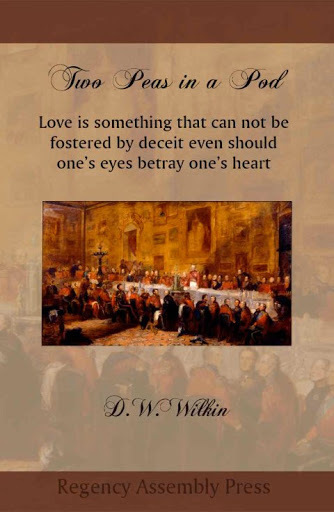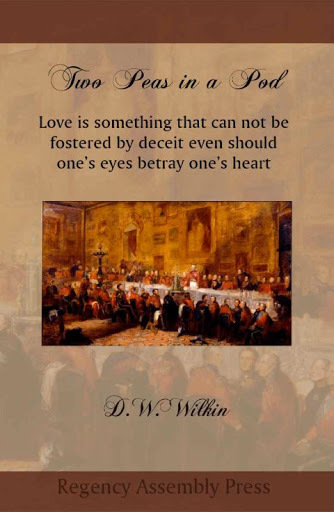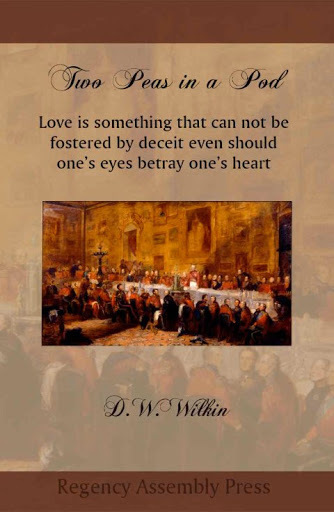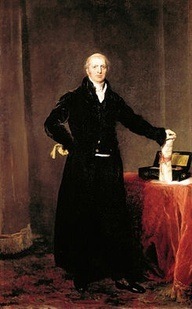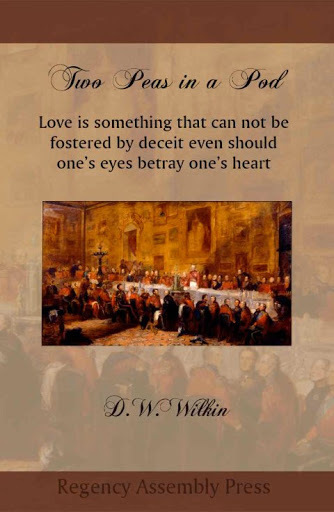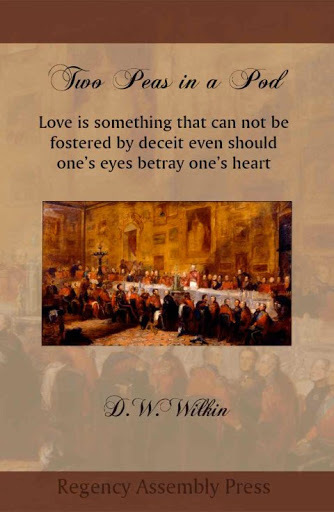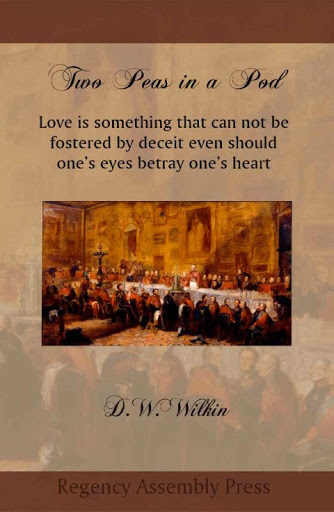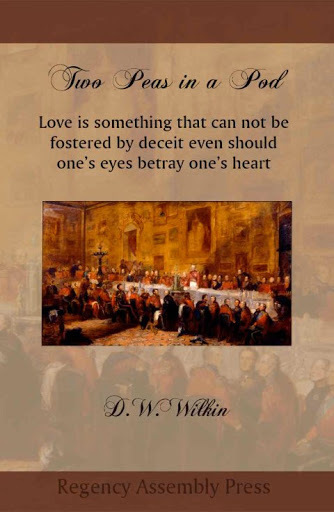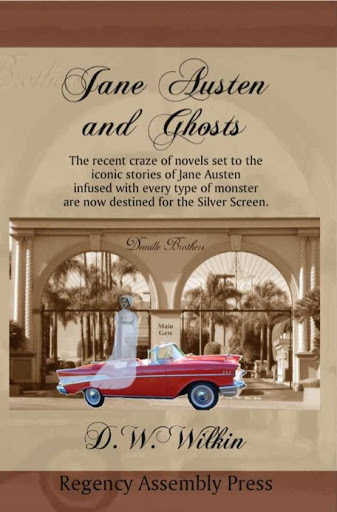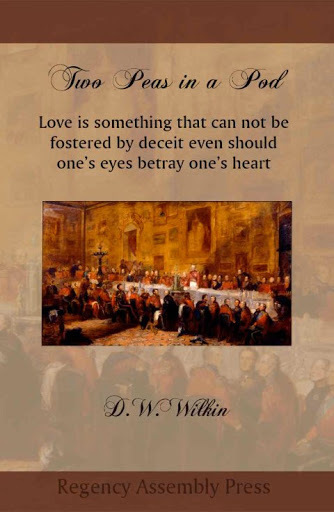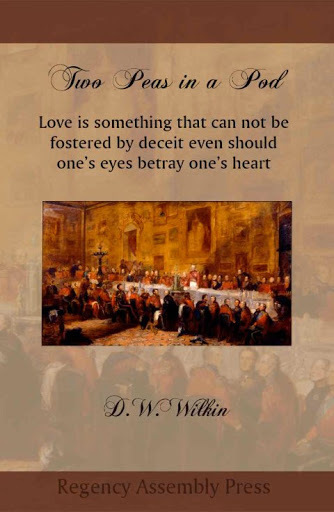D.W. Wilkin's Blog, page 344
August 23, 2012
Regency Era writer Now Hiring
At this point in my career, I think, though of course I can’t say for certain, that I have a few fans.
We may be able to count them on the fingers of one hand, but I hope there are more of you out there.
One thing though that I suffer from at this stage, is feedback.
I have 2 writing groups that I attend and we discuss the big issues in writing and critique some of what I have produced, but they do not meet often enough to work through an entire book as fast as I write them.
So, I am looking for someone, or someones who might like to help with the process.
To read my first drafts and check that I am on the right path with my plotting, my character development.
What this means is that I shall include the person(s) who wish to be a part of the process in my thinking and they can help to craft where the story goes.
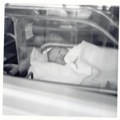
The job is to read the draft when I have finished with it, and provide criticism (you can be brutal like that character would never do that! or you forgot David, they didn’t say things like that until forty years later.) Oops… If you see glaring word misuse Then/Than and can correct it that would be appreciated as well, but not totally part of the job description. And to do this in a timely manner.
That last part is because I have hit up close friends to do this. They have volunteered (I placed an open Facebook request) and then I sit, and I wait, and I am reluctant to twist the arms of friends into if they have actually read the files I sent them. So timeliness is important, else I am stumped for moving on to the second draft and the continued editing process so we can release the book for more to read.
What you get for this service. A signed copy of the book when released. Your name in the acknowledgements and should we start selling 1000+ copies of each book, real money. (Should we start selling 3000 copies of each book, I’ll place a post for hiring a real copy editor.)
That’s what I got for now. Anyone interested, please don’t hesitate to get in touch!
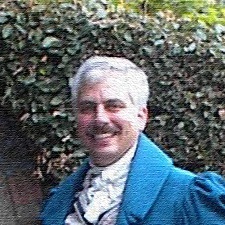


August 22, 2012
Regency Era release of Two Peas in a Pod Physically
That’s right, today is the first day that it is available as a Trade paperback. So now you can get it for your Kindle’s, and as a Trade Paperback just as the other releases from our publisher, Regency Assembly Press.
With TWO PEAS IN A POD the publisher is trying out the Kindle Select program so it is exclusive to Amazon for 90 days.
So if you desire the book electronically instead of physically then what that means for you, a reader, is that should you have
1) a Kindle
2) Are a member of Amazon Prime
then you can borrow the book, free to you, and try before you buy (always, please buy.)
For myself and Regency Assembly Press it is an experiment. RAP (And we hope you all are RAPpers and not RAPscallions) wants to see if this will work. They have also reduced the price of this book to half of what RAP books sell for. $3.99 for an electronic copy. The Trade Paperback, due to publishing costs and the cut that Amazon takes continue to see a Trade Paperback costing $15.99 (The much hyped royalties that we writers are supposed to get is nowhere near what the news reports say. Most of that price is taken by Amazon.)
If you do not have an actual Kindle, Amazon has made it possible to read this book on virtually any electronic device. GO HERE if you want to get a copy for something other than a Kindle, or wait patiently until right before Thanksgiving (November 15th) when it will be released in all other digital formats.
Here is a picture, which of course you can click on to go fetch the book:
Love is something that can not be fostered by deceit even should one’s eyes betray one’s heart.
Two brothers that are so close in appearance that only a handful have ever been able to tell them apart. The Earl of Kent, Percival Francis Michael Coldwell is only older than his brother, Peregrine Maxim Frederick Coldwell by 17 minutes. They may have looked as each other, but that masked how they were truthfully quite opposite to one another.
For Percy, his personality was one that he was quite comfortable with and more than happy to let Perry be of a serious nature. At least until he met Veronica Hamilton, the daughter of Baron Hamilton of Leith. She was only interested in a man who was serious.
Once more, Peregrine is obliged to help his older brother by taking his place, that the Earl may woo the young lady who has captured his heart. That is, until there is one who captures Peregrine’s heart as well.
Available in other digital formats on 11/15/2012
Again on sale today for $15.99
There is a visual guide to Two Peas in a Pod 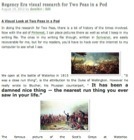 as well at Pinterest and a blog post here.
as well at Pinterest and a blog post here.
September 1st Post: Having thoughts of something special for this day. Stay tuned.


August 21, 2012
A Regency Era Timeline 1807 in progress
Timeline
Each time I start a year, I have already compiled a list, months ago with about 6000 entered of what happened from 1788 to 1837. My first step now (It took several trials to get this down to a science) is to cut out the specific year I will work on and paste it into its own spreadsheet to work with. When I worked on the entire spreadsheet, sometimes inserting a line, with all the graphics I had begun to place, took a long time. Working on each year alone, is a lot faster.
With the year separated out, I now turn to my book sources,
The Timetables of History by Grun and Stein
Chronology of CULTURE by Paxton and Fairfield
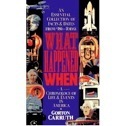 What Happened When by Carruth.
What Happened When by Carruth.
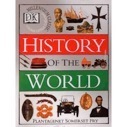 , History of the World. A beautiful Dorling Kindersley book.
, History of the World. A beautiful Dorling Kindersley book.
I now and diligently look through each of these to find entries that I did not come across on the internet, and other printed lists. It is possible that there are places that have more listings for each year. I have not found them. And when you go to the Timelines at the Regency Assembly Press page, there you will see all the graphical references as well. Something that I did not find anywhere else.
Here is the start of 1807:
Year
Month Day
Event
1807
Jan 2
Lord Grenville presented to British Parliament a “Bill for the Abolition of the Slave Trade,” effective May 1. He introduced it directly to the House of Lords. It passed the House of Lords by 64 votes and cleared the House of Commons on March 25.
1807
Jan 7
Responding to Napoleon’s blockade of the British Isles, The British blockaded Continental Europe.
1807
Jan 11
Ezra Cornell, founder of Western Union Telegraph and Cornell University (NY), was born in Westchester, NY.
1807
Jan 19
Robert E. Lee, the commander-in-chief of the Civil War Confederate Armies, was born in Stratford, Va.
1807
Jan 20
Napoleon convened the great Sanhedrin in Paris.
1807
Jan 22
President Thomas Jefferson exposed a plot by Aaron Burr to form a new republic in the Southwest.
1807
Jan 28
London’s Pall Mall was 1st street lit by gaslight.
1807
January
January: London’s Pall Mall is the first street to be lit by gaslight.
1807
Feb 5
Pasquale Paoli (80), Corsican freedom fighter, died.
1807
Feb 8
At Eylau, Poland, Napoleon’s Marshal Pierre Agureau attacked Russian forces in a heavy snowstorm. Like Napoleon, to whom he is most often compared, Alexsandr Suvorov believed that opportunities in battle are created by fortune but exploited by intelligence, experience and an intuitive eye. To him, mastery of the art and science of war was not, therefore, purely instinctive. Napoleon’s forces ran low on supplies at Eylau and ate their horses.
1807
Feb 9
French Sanhedrin was convened by Napoleon.
1807
Feb 19
Former Vice President Aaron Burr was arrested in Alabama. He was subsequently tried for treason and acquitted. [see May 22, Sep 1]
1807
Feb 24
In a crush to witness the hanging of Holloway, Heggerty and Elizabeth Godfrey in England 17 died and 15 were wounded.
1807
Feb 27
Henry Wadsworth Longfellow (d.1882), was born in Portland, Maine. He was an American poet famous for “The Children’s Hour,” and “Evangeline.” “What is time? The shadow on the dial, the striking of the clock, the running of the sand, day and night, summer and winter, months, years, centuries—these are but arbitrary and outward signs, the measure of Time, not Time itself. Time is the Life of the soul.”
1807
31-Mar
Prime Minister of the United Kingdom: William Henry Cavendish-Bentinck, 3rd Duke of Portland
1807
Mar 2
Congress banned slave trade effective January 1, 1808. The further importation of slaves was abolished but an inter-American slave trade continued.
1807
Mar 5
1st performance of Ludwig von Beethoven’s 4th Symphony in B.
1807
Mar 25
William Wilberforce (1759-1833), evangelical member of Parliament, piloted a slave-trade abolition bill through the British House of Commons. This led to a labor problem in South Africa. In 1833 Britain abolished slavery throughout the British Empire when the Slavery Abolition Bill was read a third time
1807
Mar 25
1st railway passenger service began in England.
1807
March
March: Beethoven premiers his Fourth Symphony (Symphony No. 4 in B Flat Major, Opus 60) in Vienna.
1807
March
March: George III dismisses his prime minister Lord Grenville and replaces him with the Duke of Portland.
1807
March
March: Parliament passes the Slave Trade Act, ending the trade in slaves but not slavery.
1807
March
March: The horse-powered Swansea and Mumbles Railway in Wales, originally built to transport mined ore to the Swansea docks, becomes the first passenger carrying railway in the world. It does not covert to steam-powered locomotives until 1877.
1807
Apr 4
Joseph Jerome Le Francaise de Lalande, French astronomer, died.
1807
Apr 18
Erasmus Darwin, physician, writer (Influence), died.
1807
Apr 20
Aloysius Bertrand (“Gaspard de la Nuit”), French poet, was born.
1807
May 1
John Bankhead “Prince John” Magruder, Major General (Confederate Army), was born.
1807
May 22
The treason trial of former VP Aaron Burr began in Richmond, Va. [see Sep 1]
1807
May 22
Townsend Speakman 1st sold fruit-flavored carbonated drinks in Phila.
1807
May 28
Jean Louis Agassiz (d.1873), Swiss naturalist and educator, was born. He wrote a succession of papers [1840] outlining continental glaciation not only of Europe but of North America.
1807
Jun 22
British officers of the HMS Leopard boarded the USS Chesapeake after she had set sail for the Mediterranean, and demanded the right to search the ship for deserters. Commodore James Barron refused and the British opened fire with broadsides on the unprepared Chesapeake and forced her to surrender. The British provocation led to the War of 1812.
1807
Jun 24
A grand jury in Richmond, Va., indicted former Vice President Aaron Burr on charges of treason and high misdemeanor. He was later acquitted.
1807
Jun 25
Napoleon I of France and Russian Czar Alexander I met near Tilsit, in northern Prussia, to discuss terms for ending war between their empires.
1807
Jun 25
Napoleon I of France and Russian Czar Alexander I met near Tilsit, in northern Prussia, to discuss terms for ending war between their empires.
1807
June
June: Napoleon defeats Russian troops at the Battle of Friedland.
1807
June
June: The Elgin Marbles are displayed to the public for the first time.
1807
Jul 2
In the wake of the Chesapeake incident, in which the crew of a British frigate boarded an American ship and forcibly removed four suspected deserters, President Thomas Jefferson ordered all British ships to vacate U.S. territorial waters.
1807
Jul 4
Giuseppe Garibaldi (1807-1882) Italian military leader, was born in Nice, France. He led the movement to make Italy one nation.
1807
Jul 7
Napoleon I of France and Czar Alexander I of Russia signed a treaty at Tilsit ending war between their empires. It divided Europe among themselves and isolated Britain.
1807
July
July: The Earl of Minto becomes the Governor-General of India.
1807
July
July: The Treaty of Tilsit between France and Russia divides Europe between the two powers. The new kingdom of Westphalia is created by merging territories ceded by Prussia, including the former Electorate of Hanover, with the Duchy of Brunswick-Lüneburg and the Electorate of Hesse. Napoleon’s brother Jérôme Bonaparte is named King of Westphalia.
1807
July
July: Yesterday, just as His Majesty’s carriage arrived at the Queen’s palace, a woman decently dressed attempted to force her way into the palace after His Majesty. Mssrs. Manus, Townsend, and Sayers were in attendance; they seized her, and she proved to be the same woman Sayers apprehended a few weeks since, under similar circumstances. She was extremely violent, and said she was sent by the Almighty to see the king, who was a very good sort of man, if they would let him alone. She had a petition and a pamphlet, which she wanted to give to the king. The officers took her to the secretary of state’s office. Her name is Margery Flett, and she resides in Star Court, Nightingale Lane, Wapping.-The Lady’s Magazine
1807
Aug 3
Former Vice President Aaron Burr went on trial before a federal court in Richmond, Va., charged with treason. He was acquitted less than a month later.
1807
Aug 11
David Atchison, legislator, was born. He was president pro tempore of the U.S. Senate, and president of U.S. for one day [March 4, 1849], the Sunday before Zachary Taylor was sworn in.
1807
Aug 11
The Eclipse, a Yankee fur trading vessel, sank in the Shumagin Islands, south of the Alaska Peninsula. It is the oldest known American shipwreck in Alaska and as of 2007 had not been found.
1807
Aug 17
Robert Fulton’s “North River Steam Boat” (popularly, if erroneously, known to this day as the Clermont) began heading up New York’s Hudson River on its successful round-trip to Albany. It was 125 feet (142-feet) long and 20 feet wide with side paddle wheels and a sheet iron boiler. He averaged 5 mph for the 300-mile round trip.
1807
Aug 18
Charles Francis Adams (d.1886), U.S. diplomat and public official whose father was John Quincy Adams, was born.
1807
Aug 18
Robert Stevenson (1772-1850) began work on the 117-foot Bell Rock lighthouse at the mouth of Scotland’s Firth of Forth based on a proposal he submitted in 1800. The lighthouse began operating on Feb 1, 1811.
1807
Aug 19
Robert Fulton’s North River Steamboat arrived in Albany, two days after leaving New York.
1807
Aug 21
Robert Fulton’s North River Steamboat set off from Albany on its return trip to New York, arriving some 30 hours later.
1807
Sep 1
Former Vice President Aaron Burr was found innocent of treason. [see 1806] Burr had been arrested in Mississippi for complicity in a plot to establish a Southern empire in Louisiana and Mexico. Burr was then tried on a misdemeanor charge, but was again acquitted.
1807
Sep 2
British forces began bombarding Copenhagen for several days, until the Danes agreed to surrender their naval fleet.
1807
Sep 4
Robert Fulton began operating his steamboat. [see Aug 17]
1807
Sep 7
Denmark surrendered to British forces that had bombarded the city of Copenhagen for four days.
1807
Sep 15
Former Vice President Aaron Burr was acquitted of a misdemeanor charge two weeks after he was found innocent of treason.
1807
Oct 17
Britain declared it would continue to reclaim British-born sailors from American ships and ports regardless of whether they held US citizenship.
1807
November
November: Painter Angelica Kauffmann dies at age 66, and is honored by a splendid funeral under the direction of Antonio Canova.
1807
November
November: Portugal refuses to honor the trade embargo against England, and Napoleon sends an army into Spain with the task of invading Portugal. Spain enters into the alliance with France under promises of Portuguese territories, and also with an eye on the Portuguese fleet.
1807
Dec 14
A number of meteorites fell onto Weston, Connecticut.
1807
Dec 17
John Greenleaf Whittier, American poet, was born in Haverhill, Mass. He was an abolitionist, reformer and founder of the Liberal Party.
1807
Dec 22
Congress passed the Embargo Act, designed to force peace between Britain and France by cutting off all trade with Europe. It was hoped that the act would keep the United States out the European Wars.
1807
December
December: Lisbon is captured by the French.
1807
Charles Lamb and his sister Mary publish the children’s book, Tales of Shakespeare, and it is an instant bestseller.
1807
Horseman from the west frieze of the Parthenon, part of the “Elgin Marbles” brought to England by Lord Elgin between 1801 and 1812. They were first displayed in 1807 in a special shed built by Lord Elgin at a house he rented on Park Lane. In 1811 the Duke of Devonshure agreed to house them at Burlington House. Elgin was finally able to sell them to the British Museum in 1816. From their first exhibition in 1807, the sculptures drew enormous interest. Artists and poets praised them, but others, like Lord Byron, denounced Elgin as a vandal and thought the scultures should have remained in situ. Many still agree with him, and there is an ongoing debate between the Greek government and the British Museum about the rightful disposition of the sculptures.
1807
Jacques Louis David paints his monumental work, The Coronation of Napoleon and Josephine.
1807
Lord Byron publishes his first volume of poetry, Hours of Idleness.
1807
The Geological Society of London is founded, the first society devoted to earth sciences in the world. Humphry Davy is one of its founders.
1807
The slave trade is abolished.
1807
Wordsworth publishes Poems In Two Volumes, including the poems “I Wandered Lonely as a Cloud” and “The World is Too Much With Us.”
1807
1807
Robert Fulton’s Clermont first successful steamboat.
1807
Extending its power at sea, Britain outlaws slave trading across the Atlantic for its own ships and for ships from all countries united with Napoleon. Britain turns a presence on the coast of western Africa into a crown colony — Sierra Leone.
1807
The U.S. Congress passes a law that bans the importation of slaves into the U.S., a law to be largely ignored in southern states.
1807
In Manchester, England, the largest factory complex in the world opens and the event draws spectators from across Britain and beyond. The factory uses steam acquired from burning coal. It’s a change from power by river water, which is too limited a source for the coming industrial expansion. The availability of coal is helping the British surpass the Dutch industrially.
1807
The Geological Society of London is created, the founders expressing their desire to avoid preconceived notions and to collect facts for discussion.
1807
With help from the French, Muhammad Ali Pasha drives the British out of Egypt (a part of the Ottoman Empire).
1807
Napoleon moves to consolidate his position in Europe. He defeats a combined Prussian and Russian force in February. Danzig surrenders to him. He defeats the Russians in June and occupies Königsberg. Alexander of Russia is annoyed with the British and agrees to meet with Napoleon. In August, Napoleon demands that Portugal join the trade boycott against the British and declare war on Britain. Portugal hesitates. Napoleon’s ally, Spain, allows French troops to pass through its territory to Portugal. The French captured Lisbon as Portugal’s royal family flees to Brazil.
1807
The US Congressional Cemetery near Capital Hill was established.
1807
The US Survey of the Coast formed. It later developed into the National Oceanic and Atmospheric Administration (NOAA).
1807
Lieutenant Zebulon Montgomery Pike strayed beyond the limits of the territory into the Spanish-held territory of New Mexico, and was accused of spying by Spanish authorities. The Spaniards released Pike and his men after they could find no evidence against him. Pike’s explorations the previous November had taken him to the Rockies, where he reached the base of a mountain that would later be named Pikes Peak in his honor. Pike’s mission was to explore the southwestern limits of the Louisiana Territory, the vast tract of land that the United States had purchased from France in 1803 in a deal known as the Louisiana Purchase.
1807
The Geological Society of London was born. It was the first body of men devoted to the earth sciences.
1807
Englishmen William and John Cockerill brought the Industrial Revolution to continental Europe around 1807 by developing machine shops in Liege, Belgium, transforming the country’s coal, iron and textile industries much as it had done in Britain. From roughly 1760 to about 1830, the Industrial Revolution largely occurred in Britain. Realizing the economic advantages, Britain did not allow the export of any machinery, methods or skilled men that might blunt its technological edge. Eventually, the lure of new opportunities convinced continental entrepreneurs and British businessmen to evade England’s official edict.
1807
After Britain outlawed the slave trade people called “Recaptives,” those freed from slave ships, were sent to join the settlers in Sierra Leone. The settlers formed a new tribe called the Kri and created a language called Krio.
1807
Zheng Yi Sao took over a confederation of pirates in the South China Sea about this time following the death if her husband. At its peak the confederation numbered some 50-70 thousand mend and controlled 800 large vessels. The group disbanded in 1810 under an offer of amnesty.
1807
In France Napoleon allied with Russia.
1807
Napoleon gave Danzig (later Gdansk) 6 years of formal independence.
1807
Ignace Playel founded a piano company in Paris, France.
1807
Saud al-Saud invaded Karbala, Iraq, for the second time in 1807, but he could not occupy it.
1807
In Naples, Italy, Major Leopold Hugo, the father of Victor Hugo, was promoted after a successful campaign against the Calabrian banditti.
1807
Serfdom was abolished in the Lithuanian territories known as Suvalkija and Dzukija as far as the Nemunas river. This area had been given to Prussia in the 1795 division and then included into the Warsaw Principality.
1807-1808
Mustafa IV succeeded Selim III in the Ottoman House of Osman.
1807-1809
A Jefferson imposed embargo kept American ships at home. [see Dec 22 1807]
1807-1815
Britain and the Defeat of Napoleon, 1807-1815 by Rory Muir was published in 1996.
1807-1859
Gamaliel Bailey, American abolitionist: “Who never doubted, never half believed. Where doubt is, there truth is—it is her shadow.”
1807-1877
US Sen. John Petit. He once called the Declaration of Independence a “self-evident-lie” in reference to the freedom of blacks.
1807-1881
Giovanni Ruffini, Italian writer: “Curses are like processions. They return to the place from which they came.”
That’s right, today is the first week that it is available. Kindle’s today, and then in a week or so, you can have it in your hands physically if you so desire in Trade Paperback form as the other releases from our publisher, Regency Assembly Press does.
This release the publisher is trying out the Kindle Select program so it is exclusive to Amazon for 90 days. What that means for you, a reader, is that should you have
1) a Kindle
2) Are a member of Amazon Prime
then you can borrow the book, free to you, and try before you buy (always, please buy.)
For myself and Regency Assembly Press it is an experiment. RAP (And we hope you all are RAPpers and not RAPscallions) wants to see if this will work. They have also reduced the price of this book to half of what RAP books sell for. $3.99 for an electronic copy.
If you do not have an actual Kindle, Amazon has made it possible to read this book on virtually any electronic device. GO HERE if you want to get a copy for something other than a Kindle, or wait patiently until right before Thanksgiving (November 15th) when it will be released in all other digital formats.
Here is a picture, which of course you can click on to go fetch the book:
Love is something that can not be fostered by deceit even should one’s eyes betray one’s heart.
Two brothers that are so close in appearance that only a handful have ever been able to tell them apart. The Earl of Kent, Percival Francis Michael Coldwell is only older than his brother, Peregrine Maxim Frederick Coldwell by 17 minutes. They may have looked as each other, but that masked how they were truthfully quite opposite to one another.
For Percy, his personality was one that he was quite comfortable with and more than happy to let Perry be of a serious nature. At least until he met Veronica Hamilton, the daughter of Baron Hamilton of Leith. She was only interested in a man who was serious.
Once more, Peregrine is obliged to help his older brother by taking his place, that the Earl may woo the young lady who has captured his heart. That is, until there is one who captures Peregrine’s heart as well.
Available in other digital formats on 11/15/2012


August 20, 2012
Regency Era release of Two Peas in a Pod
That’s right, today is the first day that it is available. Kindle’s today, and then in a week or so, you can have it in your hands physically if you so desire in Trade Paperback form as the other releases from our publisher, Regency Assembly Press does.
This release the publisher is trying out the Kindle Select program so it is exclusive to Amazon for 90 days. What that means for you, a reader, is that should you have
1) a Kindle
2) Are a member of Amazon Prime
then you can borrow the book, free to you, and try before you buy (always, please buy.)
For myself and Regency Assembly Press it is an experiment. RAP (And we hope you all are RAPpers and not RAPscallions) wants to see if this will work. They have also reduced the price of this book to half of what RAP books sell for. $3.99 for an electronic copy.
If you do not have an actual Kindle, Amazon has made it possible to read this book on virtually any electronic device. GO HERE if you want to get a copy for something other than a Kindle, or wait patiently until right before Thanksgiving (November 15th) when it will be released in all other digital formats.
Here is a picture, which of course you can click on to go fetch the book:
Love is something that can not be fostered by deceit even should one’s eyes betray one’s heart.
Two brothers that are so close in appearance that only a handful have ever been able to tell them apart. The Earl of Kent, Percival Francis Michael Coldwell is only older than his brother, Peregrine Maxim Frederick Coldwell by 17 minutes. They may have looked as each other, but that masked how they were truthfully quite opposite to one another.
For Percy, his personality was one that he was quite comfortable with and more than happy to let Perry be of a serious nature. At least until he met Veronica Hamilton, the daughter of Baron Hamilton of Leith. She was only interested in a man who was serious.
Once more, Peregrine is obliged to help his older brother by taking his place, that the Earl may woo the young lady who has captured his heart. That is, until there is one who captures Peregrine’s heart as well.
Available in other digital formats on 11/15/2012
There is a visual guide to Two Peas in a Pod 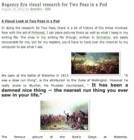 as well at Pinterest and a blog post here.
as well at Pinterest and a blog post here.
September 1st Post: Having thoughts of something special for this day. Stay tuned.


August 19, 2012
Regency Era visual research for Two Peas in a Pod
A Visual Look at Two Peas in a Pod
In doing the research for Two Peas, there is a lot of history of the times involved. Now with the aid of Pinterest, I can place pictures there as well as what I keep in my writing file. The ones in my writing file though, written in Scrivener, are easily recoverable for me, but for my readers, you’d have to hack over the internet to my computer to see what I see.
We open at the battle of Waterloo in 1815  . “It was a close run thing”, is the attribution to the Duke of Wellington. However he really wrote to Blucher, his Prussian counterpart, “ It has been a damned nice thing — the nearest run thing you ever saw in your life.”
. “It was a close run thing”, is the attribution to the Duke of Wellington. However he really wrote to Blucher, his Prussian counterpart, “ It has been a damned nice thing — the nearest run thing you ever saw in your life.”
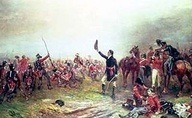
The famous picture of the Scot’s Greys at Waterloo  was one of the first things that came to mind when I thought of placing the brothers, but then I decided that one of the things that lent character to Percival would be he as an infantry officers walking ahead of his men, his sword held high. When you delve into the story you see that is something that becomes part of Percival’s own battle.
was one of the first things that came to mind when I thought of placing the brothers, but then I decided that one of the things that lent character to Percival would be he as an infantry officers walking ahead of his men, his sword held high. When you delve into the story you see that is something that becomes part of Percival’s own battle.
My two heroes, Percival, a Captain (the older, and thes the Earl) and Peregrine a Major, are Grenadier Guards. (The Earl of Kent, he could be of another regiment of course, but the Guards were for the elite of class)
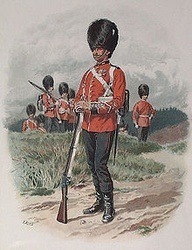
Their commander during the campaign was Henry Askew, who is someone that Peregrine, as a Major interacts with more and sees as a mentor.
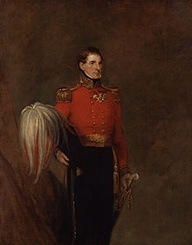
The County Holdings is in Kent, my hero Percival, is the Earl of Kent, Peregrine is his younger brother by 17 minutes. I located their ancestral home in the village of Chartham.
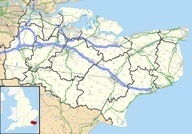
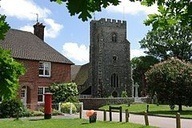
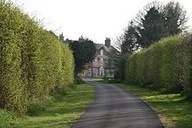
For background, we have the mention of Lackington’s
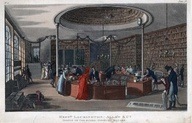
A good place to stock your library, which the Earl will want to do as circumstances in the story relate
That the Earl is also tantalized by the Dandys and Brummell their leader, 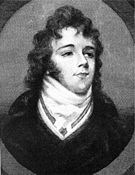 is a part of the plot structure.
is a part of the plot structure.
Then we have the disposition of Peregrine to deal with as well. He, as the second son, though only 17 minutes younger than his brother, has no lands or great monies that he has inherited. He must shift for himself and he has done well in the army. Wellington 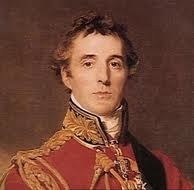 and others think he should stay in the army. Possibly have a posting in India, Africa or even Van Diemen’s Land.
and others think he should stay in the army. Possibly have a posting in India, Africa or even Van Diemen’s Land.
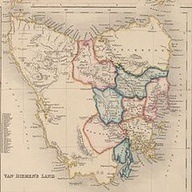
named after
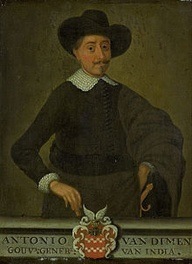
Anthony Van Diemen
The Government of Lord Liverpool was in power in Parliament, and was so for many years, so Robert Jenkinson has a part off camera in our story. Who I have detailed before in a blog post.
As does Lord Byron, who the women of course like a great deal, but our heroes are of an age that they were at school with the man.
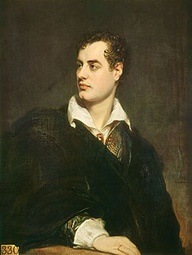
Then so much takes place with dancing, we have two balls in the story, and others mentioned as well as Alamack’s and Lady Jersey.
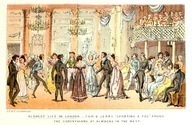
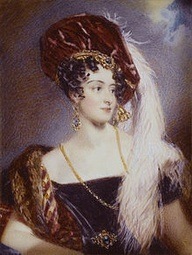
You can visit the Pinterest board I designed for this, or better, purchase the book.
Love is something that can not be fostered by deceit even should one’s eyes betray one’s heart.
Two brothers that are so close in appearance that only a handful have ever been able to tell them apart. The Earl of Kent, Percival Francis Michael Coldwell is only older than his brother, Peregrine Maxim Frederick Coldwell by 17 minutes. They may have looked as each other, but that masked how they were truthfully quite opposite to one another.
For Percy, his personality was one that he was quite comfortable with and more than happy to let Perry be of a serious nature. At least until he met Veronica Hamilton, the daughter of Baron Hamilton of Leith. She was only interested in a man who was serious.
Once more, Peregrine is obliged to help his older brother by taking his place, that the Earl may woo the young lady who has captured his heart. That is, until there is one who captures Peregrine’s heart as well.
That’s right, today is the first week that it is available. For Kindle’s today, and then in a week or so, you can have it in your hands physically if you so desire in Trade Paperback form as the other releases from our publisher, Regency Assembly Press does.
This release the publisher is trying out the Kindle Select program so it is exclusive to Amazon for 90 days. What that means for you, a reader, is that should you have
1) a Kindle
2) Are a member of Amazon Prime
then you can borrow the book, free to you, and try before you buy (always, please buy.)
For myself and Regency Assembly Press it is an experiment. RAP (And we hope you all are RAPpers and not RAPscallions) wants to see if this will work. They have also reduced the price of this book to half of what RAP books sell for. $3.99 for an electronic copy.
If you do not have an actual Kindle, Amazon has made it possible to read this book on virtually any electronic device. GO HERE if you want to get a copy for something other than a Kindle, or wait patiently until right before Thanksgiving (November 15th) when it will be released in all other digital formats.
Click on the picture above to fetch the book:
Available in other digital formats on 11/15/2012


A Regency Era Timeline 1806 in progress
That’s right, today is the first week that it is available. Kindle’s today, and then in a week or so, you can have it in your hands physically if you so desire in Trade Paperback form as the other releases from our publisher, Regency Assembly Press does.
This release the publisher is trying out the Kindle Select program so it is exclusive to Amazon for 90 days. What that means for you, a reader, is that should you have
1) a Kindle
2) Are a member of Amazon Prime
then you can borrow the book, free to you, and try before you buy (always, please buy.)
For myself and Regency Assembly Press it is an experiment. RAP (And we hope you all are RAPpers and not RAPscallions) wants to see if this will work. They have also reduced the price of this book to half of what RAP books sell for. $3.99 for an electronic copy.
If you do not have an actual Kindle, Amazon has made it possible to read this book on virtually any electronic device. GO HERE if you want to get a copy for something other than a Kindle, or wait patiently until right before Thanksgiving (November 15th) when it will be released in all other digital formats.
Here is a picture, which of course you can click on to go fetch the book:
Love is something that can not be fostered by deceit even should one’s eyes betray one’s heart.
Two brothers that are so close in appearance that only a handful have ever been able to tell them apart. The Earl of Kent, Percival Francis Michael Coldwell is only older than his brother, Peregrine Maxim Frederick Coldwell by 17 minutes. They may have looked as each other, but that masked how they were truthfully quite opposite to one another.
For Percy, his personality was one that he was quite comfortable with and more than happy to let Perry be of a serious nature. At least until he met Veronica Hamilton, the daughter of Baron Hamilton of Leith. She was only interested in a man who was serious.
Once more, Peregrine is obliged to help his older brother by taking his place, that the Earl may woo the young lady who has captured his heart. That is, until there is one who captures Peregrine’s heart as well.
Available in other digital formats on 11/15/2012
Timeline
Each time I start a year, I have already compiled a list, months ago with about 6000 entered of what happened from 1788 to 1837. My first step now (It took several trials to get this down to a science) is to cut out the specific year I will work on and paste it into its own spreadsheet to work with. When I worked on the entire spreadsheet, sometimes inserting a line, with all the graphics I had begun to place, took a long time. Working on each year alone, is a lot faster.
With the year separated out, I now turn to my book sources,
The Timetables of History by Grun and Stein
Chronology of CULTURE by Paxton and Fairfield
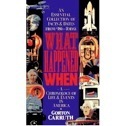 What Happened When by Carruth.
What Happened When by Carruth.
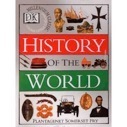 , History of the World. A beautiful Dorling Kindersley book.
, History of the World. A beautiful Dorling Kindersley book.
I now and diligently look through each of these to find entries that I did not come across on the internet, and other printed lists. It is possible that there are places that have more listings for each year. I have not found them. And when you go to the Timelines at the Regency Assembly Press page, there you will see all the graphical references as well. Something that I did not find anywhere else.
Here is the start of 1806:
Year
Month Day
Event
1806
Jan 2
Lord Grenville presented to British Parliament a “Bill for the Abolition of the Slave Trade,” effective May 1. He introduced it directly to the House of Lords. It passed the House of Lords by 64 votes and cleared the House of Commons on March 25.
1806
Jan 7
Responding to Napoleon’s blockade of the British Isles, The British blockaded Continental Europe.
1806
Jan 11
Ezra Cornell, founder of Western Union Telegraph and Cornell University (NY), was born in Westchester, NY.
1806
Jan 19
Robert E. Lee, the commander-in-chief of the Civil War Confederate Armies, was born in Stratford, Va.
1806
Jan 20
Napoleon convened the great Sanhedrin in Paris.
1806
Jan 22
President Thomas Jefferson exposed a plot by Aaron Burr to form a new republic in the Southwest.
1806
Jan 28
London’s Pall Mall was 1st street lit by gaslight.
1806
January
January: Admiral Lord Nelson is the first commoner to be given a state funeral.
1806
January
January: Ferdinand IV and Maria Carolina of Naples flee to Sicily, and Napoleon installs his brother Joseph Bonaparte as King of Naples and Sicily.
1806
January
January: Prime Minister William Pitt dies at age 46. He leaves behind enormous personal debts, which the House of Commons contrives to pay off, but manages to leave his niece, Lady Hester Stanhope, a penison of £1200 a year. She has acted as housekeeper and hostess for her bachelor uncle in the last 3 years of his life.
1806
January
January: The British occupy the Cape of Good Hope after the surrender of Cape Town by the Dutch.
1806
January
January: The Times of London publishes its first illustration, showing Nelson’s funeral.
1806
11-Feb
Prime Minister of the United Kingdom: William Wyndham Grenville, 1st Baron Grenville
1806
Feb 5
Pasquale Paoli (80), Corsican freedom fighter, died.
1806
Feb 8
At Eylau, Poland, Napoleon’s Marshal Pierre Agureau attacked Russian forces in a heavy snowstorm. Like Napoleon, to whom he is most often compared, Alexsandr Suvorov believed that opportunities in battle are created by fortune but exploited by intelligence, experience and an intuitive eye. To him, mastery of the art and science of war was not, therefore, purely instinctive. Napoleon’s forces ran low on supplies at Eylau and ate their horses.
1806
Feb 9
French Sanhedrin was convened by Napoleon.
1806
Feb 19
Former Vice President Aaron Burr was arrested in Alabama. He was subsequently tried for treason and acquitted. [see May 22, Sep 1]
1806
Feb 24
In a crush to witness the hanging of Holloway, Heggerty and Elizabeth Godfrey in England 17 died and 15 were wounded.
1806
Feb 27
Henry Wadsworth Longfellow (d.1882), was born in Portland, Maine. He was an American poet famous for “The Children’s Hour,” and “Evangeline.” “What is time? The shadow on the dial, the striking of the clock, the running of the sand, day and night, summer and winter, months, years, centuries—these are but arbitrary and outward signs, the measure of Time, not Time itself. Time is the Life of the soul.”
1806
February
February: Lord Grenville becomes Britain’s Prime Minister.
1806
February
February: The first issue of the magazine La Belle Assemblée is published.
1806
Mar 2
Congress banned slave trade effective January 1, 1808. The further importation of slaves was abolished but an inter-American slave trade continued.
1806
Mar 5
1st performance of Ludwig von Beethoven’s 4th Symphony in B.
1806
Mar 25
William Wilberforce (1759-1833), evangelical member of Parliament, piloted a slave-trade abolition bill through the British House of Commons. This led to a labor problem in South Africa. In 1833 Britain abolished slavery throughout the British Empire when the Slavery Abolition Bill was read a third time
1806
Mar 25
1st railway passenger service began in England.
1806
March
March: Georgiana, Duchess of Devonshire, celebrated beauty, society hostess, and political campaigner, dies at age 47.
1806
Apr 4
Joseph Jerome Le Francaise de Lalande, French astronomer, died.
1806
Apr 18
Erasmus Darwin, physician, writer (Influence), died.
1806
Apr 20
Aloysius Bertrand (“Gaspard de la Nuit”), French poet, was born.
1806
May 1
John Bankhead “Prince John” Magruder, Major General (Confederate Army), was born.
1806
May 22
The treason trial of former VP Aaron Burr began in Richmond, Va. [see Sep 1]
1806
May 22
Townsend Speakman 1st sold fruit-flavored carbonated drinks in Phila.
1806
May 28
Jean Louis Agassiz (d.1873), Swiss naturalist and educator, was born. He wrote a succession of papers [1840] outlining continental glaciation not only of Europe but of North America.
1806
May
May: England introduces a blockade of the European coast from Brest to the Elbe, but permits ships of neutral nations to pass if they are not carrying goods to or from enemy ports.
1806
Jun 22
British officers of the HMS Leopard boarded the USS Chesapeake after she had set sail for the Mediterranean, and demanded the right to search the ship for deserters. Commodore James Barron refused and the British opened fire with broadsides on the unprepared Chesapeake and forced her to surrender. The British provocation led to the War of 1812.
1806
Jun 24
A grand jury in Richmond, Va., indicted former Vice President Aaron Burr on charges of treason and high misdemeanor. He was later acquitted.
1806
Jun 25
Napoleon I of France and Russian Czar Alexander I met near Tilsit, in northern Prussia, to discuss terms for ending war between their empires.
1806
Jun 25
Napoleon I of France and Russian Czar Alexander I met near Tilsit, in northern Prussia, to discuss terms for ending war between their empires.
1806
June
June: Architect Henry Holland dies at age 60.
1806
June
June: Napoleon installs his brother Louis Bonaparte as king of Holland.
1806
Jul 2
In the wake of the Chesapeake incident, in which the crew of a British frigate boarded an American ship and forcibly removed four suspected deserters, President Thomas Jefferson ordered all British ships to vacate U.S. territorial waters.
1806
Jul 4
Giuseppe Garibaldi (1807-1882) Italian military leader, was born in Nice, France. He led the movement to make Italy one nation.
1806
Jul 7
Napoleon I of France and Czar Alexander I of Russia signed a treaty at Tilsit ending war between their empires. It divided Europe among themselves and isolated Britain.
1806
July
July: English painter George Stubbs dies at age 81.
1806
July
July: The Vellore Mutiny is the first instance of a mutiny by the Indian sepoys against the British East India Company.
1806
Aug 3
Former Vice President Aaron Burr went on trial before a federal court in Richmond, Va., charged with treason. He was acquitted less than a month later.
1806
Aug 11
David Atchison, legislator, was born. He was president pro tempore of the U.S. Senate, and president of U.S. for one day [March 4, 1849], the Sunday before Zachary Taylor was sworn in.
1806
Aug 11
The Eclipse, a Yankee fur trading vessel, sank in the Shumagin Islands, south of the Alaska Peninsula. It is the oldest known American shipwreck in Alaska and as of 2007 had not been found.
1806
Aug 17
Robert Fulton’s “North River Steam Boat” (popularly, if erroneously, known to this day as the Clermont) began heading up New York’s Hudson River on its successful round-trip to Albany. It was 125 feet (142-feet) long and 20 feet wide with side paddle wheels and a sheet iron boiler. He averaged 5 mph for the 300-mile round trip.
1806
Aug 18
Charles Francis Adams (d.1886), U.S. diplomat and public official whose father was John Quincy Adams, was born.
1806
Aug 18
Robert Stevenson (1772-1850) began work on the 117-foot Bell Rock lighthouse at the mouth of Scotland’s Firth of Forth based on a proposal he submitted in 1800. The lighthouse began operating on Feb 1, 1811.
1806
Aug 19
Robert Fulton’s North River Steamboat arrived in Albany, two days after leaving New York.
1806
Aug 21
Robert Fulton’s North River Steamboat set off from Albany on its return trip to New York, arriving some 30 hours later.
1806
August
August: Francis II abdicates as Holy Roman Emperor, thus ending the 806-year old Holy Roman Empire.
1806
August
August: French painter Jean-Honoré Fragonard dies at age 74.
1806
Sep 1
Former Vice President Aaron Burr was found innocent of treason. [see 1806] Burr had been arrested in Mississippi for complicity in a plot to establish a Southern empire in Louisiana and Mexico. Burr was then tried on a misdemeanor charge, but was again acquitted.
1806
Sep 2
British forces began bombarding Copenhagen for several days, until the Danes agreed to surrender their naval fleet.
1806
Sep 4
Robert Fulton began operating his steamboat. [see Aug 17]
1806
Sep 7
Denmark surrendered to British forces that had bombarded the city of Copenhagen for four days.
1806
Sep 15
Former Vice President Aaron Burr was acquitted of a misdemeanor charge two weeks after he was found innocent of treason.
1806
September
September: Charles James Fox, prominent Whig statesman and persistant rival of William Pitt, dies at age 57.
1806
September
September: Prussia and Saxony declare war on France.
1806
Oct 17
Britain declared it would continue to reclaim British-born sailors from American ships and ports regardless of whether they held US citizenship.
1806
October
October: Napoleon defeats Prussia in the twin battles of Jena and Auerstedt.
1806
October
October: Opera singer Angelica Catalani arrives in London and is a huge success when she sings at the King’s Theatre in Haymarket.
1806
October
October: The first edition of the British magazine Le Beau Monde is published.
1806
November
November: Napoleon enforces the Continental System, a blockade forbidding every major power in Europe (who were by then either his allies or conquests) from trading with Britain.
1806
Dec 14
A number of meteorites fell onto Weston, Connecticut.
1806
Dec 17
John Greenleaf Whittier, American poet, was born in Haverhill, Mass. He was an abolitionist, reformer and founder of the Liberal Party.
1806
Dec 22
Congress passed the Embargo Act, designed to force peace between Britain and France by cutting off all trade with Europe. It was hoped that the act would keep the United States out the European Wars.
1806
21-Apr 12:00 AM
Saudi Arabs led Sunni raids into Najaf, Iraq, killing about 5,000 people.
1806
1806
British essayist William Hazlitt publishes Principles of Human Action.
1806
English sisters Ann and Jane Taylor publish Rhymes for the Nursery, which includes Jane’s nursery rhyme “Twinkle, twinkle, little star.”
1806
Funeral procession of Admiral Lord Nelson, from the Admiralty to St. Paul’s, London,January 9, 1806 – print by Augustus Charles Pugin.
1806
Rossini’s first opera, “Demetrio a Polibio,” is performed in Rome.
1806
Watier’s Club is established in London. Dubbed the “Dandy Club” by Lord Byron, it was known for its fine food and high-stakes gambling. Beau Brummell is appointed as perpetual president.
1806
The Emperor of Austria, Francis I, abdicates his other title: Holy Roman Emperor. The Holy Roman Empire, created in the 800s, is formally dissolved, with Napoleon reorganizing much of it into his Confederation of the Rhine.
1806
Jean Jacques Dessalines, leader of Haiti’s revolution and self-declared emperor, is being viewed by his generals as a ridiculous figure. Dessalines announces his plan to march with troops into the south, where he is not popular, and the south explodes in rebellion. Dessalines’ generals prepare a trap for him along the way. His horse is shot from under him. He is pinned under his horse, he is shot in the head and his body hacked to pieces with machetes.
1806
Ruling the seas, a British naval force takes control of Cape Colony in South Africa — the Dutch who had been ruling there now being ruled by Britain’s enemy, Napoleon.
1806
Nov 21, In the Decree of Berlin Emperor Napoleon banned all trade with England.
1806
Nov 28, French forces led by Joachim Murat entered Warsaw.
1806
Dec 3, Henry Alexander Wise (d.1876), Brig General (Confederate Army), was born.
1806
Dec 6, The African Meeting House was dedicated in Boston. It was later used by Frederick Douglass and other prominent abolitionists to rail against slavery. In 1974 it was named as a National History Landmark. In 2011 a $9 million restoration was completed.
1806
Dec 26, Napoleon’s army was checked by the Russians at the Battle of Pultusk.
1806
Jean-Gabriel Charvet painted his wallpaper panel “Savages of the Pacific Ocean.”
1806
Jean Ingres painted his magnificent: “Napoleon I on His Imperial Throne.”
1806
In London James Beresford published his bestselling book “The Miseries of Human Life, or the groans of Samuel Sensitive and Timothy Testy. With a few supplementary sighs from Mrs. Testy. In twelve dialogues.”
1806
Charles and Mary Lamb authored “Tales from Shakespeare.” [see 1796: Mad Mary Lamb]
1806
Noah Webster (1758-1843), a Connecticut schoolmaster, published a short dictionary. He then began work on a longer work: “An American Dictionary of the English language,” which was completed in England 1825 and published as a 2-volume set in 1828.
1806
Wordsworth (1770-1850) composed the lines: “The world is too much with us.”
1806
A catalog of the plants at Elgin Botanical Garden was published. This was the first botanical garden in NYC and was located at what later became Rockefeller Center.
1806
A printed reference to a mixed drink cocktail first appeared in the US.
1806
William Strickland, architect of the first Town Hall in New York, introduced the technique of the suspension bridge in the United States, which he learned in France.
1806
In Baltimore, Maryland, ground was broken for a cathedral designed by Benjamin Henry Latrobe. Bungles and war delayed dedication until 1821. In 1937 Pope Pius XI elevated the cathedral to a basilica.
1806
Jesse Wood of Poughkeepsie, N.Y. was tried for the murder of his son.
1806
Aaron Burr, Vice-President under Thomas Jefferson, was implicated in a reputed plot among northeastern Federalists to break up the Union rather than to submit to four more years of Republican rule. One of the goals of the Burr Conspiracy was to separate Louisiana and other Western states from the Union and establish an empire with Burr at the head. Aaron Burr, formerly vice president under Thomas Jefferson, had recently slain Alexander Hamilton in a duel in July 1804 when he began plotting a movement to separate the Western states from the Union. Burr was later tried for treason in federal court and acquitted. Burr was captured in 1806 on the Ohio River and charged with recruiting forces to further plot the disunion.
1806
Shoemakers in Philadelphia formed a union.
1806
Ye Old Pepper Companie was founded in Salem, Mass., USA. It claims to be the country’s oldest candy company.
1806
NYC Mayor DeWitt Clinton, having read the work of Englishman Joseph Lancaster, formed the New York Free School Society to found Lancastrian schools.
1806
Andrew Jackson killed Charles Dickinson in a duel over a debt owed on a horse race bet. Jackson was struck in the chest by Dickinson‘s shot but returned fire and killed his opponent. “I should have hit him,” he reportedly said, “if he had shot me through the brain.” His duel with Dickinson was one of several the often ill-tempered Jackson engaged in. Jackson, who became the seventh U.S. president in 1829, carried Dickinson‘s bullet in his chest until he died in 1845.
1806
Lord Grenville succeeded William Pitt as British prime minister.
1806
The British wrested power over South Africa from the Dutch and prompt the Boer farmers to later move into the interior.
1806
The British began the construction of Dartmoor Prisoner to house French soldiers captured in the Napoleonic Wars. It was capable of housing 10,500 prisoners and 2,000 guards.
1806
In Paris the 3-mile Canal St. Marten waterway was built to connect the Seine to northeast France.
1806
Napoleon issued his Berlin Decrees. They established the Continental System to restrict European trade with Britain.
1806
Napoleon ordered that all French citizens be vaccinated against smallpox.
1806
A ruling by the Spanish king set a boundary between Honduras and Nicaragua projecting eastward along the 15th parallel from the mouth of the Coco River. In 1999 Nicaragua filed a border case against Honduras with the UN. It was resolved in 2007.
1806-1813
Trieste was held under French rule.
1806-1914
In 1996 Public Broadcasting featured “The West,” a historical documentary covering this period in the US.


August 18, 2012
A Regency Era Timeline 1805 in progress
That’s right, today is the first week that it is available. Kindle’s today, and then in a week or so, you can have it in your hands physically if you so desire in Trade Paperback form as the other releases from our publisher, Regency Assembly Press does.
This release the publisher is trying out the Kindle Select program so it is exclusive to Amazon for 90 days. What that means for you, a reader, is that should you have
1) a Kindle
2) Are a member of Amazon Prime
then you can borrow the book, free to you, and try before you buy (always, please buy.)
For myself and Regency Assembly Press it is an experiment. RAP (And we hope you all are RAPpers and not RAPscallions) wants to see if this will work. They have also reduced the price of this book to half of what RAP books sell for. $3.99 for an electronic copy.
If you do not have an actual Kindle, Amazon has made it possible to read this book on virtually any electronic device. GO HERE if you want to get a copy for something other than a Kindle, or wait patiently until right before Thanksgiving (November 15th) when it will be released in all other digital formats.
Here is a picture, which of course you can click on to go fetch the book:
Love is something that can not be fostered by deceit even should one’s eyes betray one’s heart.
Two brothers that are so close in appearance that only a handful have ever been able to tell them apart. The Earl of Kent, Percival Francis Michael Coldwell is only older than his brother, Peregrine Maxim Frederick Coldwell by 17 minutes. They may have looked as each other, but that masked how they were truthfully quite opposite to one another.
For Percy, his personality was one that he was quite comfortable with and more than happy to let Perry be of a serious nature. At least until he met Veronica Hamilton, the daughter of Baron Hamilton of Leith. She was only interested in a man who was serious.
Once more, Peregrine is obliged to help his older brother by taking his place, that the Earl may woo the young lady who has captured his heart. That is, until there is one who captures Peregrine’s heart as well.
Available in other digital formats on 11/15/2012
Timeline
Each time I start a year, I have already compiled a list, months ago with about 6000 entered of what happened from 1788 to 1837. My first step now (It took several trials to get this down to a science) is to cut out the specific year I will work on and paste it into its own spreadsheet to work with. When I worked on the entire spreadsheet, sometimes inserting a line, with all the graphics I had begun to place, took a long time. Working on each year alone, is a lot faster.
With the year separated out, I now turn to my book sources,
The Timetables of History by Grun and Stein
Chronology of CULTURE by Paxton and Fairfield
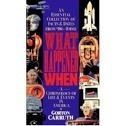 What Happened When by Carruth.
What Happened When by Carruth.
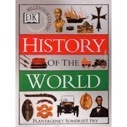 , History of the World. A beautiful Dorling Kindersley book.
, History of the World. A beautiful Dorling Kindersley book.
I now and diligently look through each of these to find entries that I did not come across on the internet, and other printed lists. It is possible that there are places that have more listings for each year. I have not found them. And when you go to the Timelines at the Regency Assembly Press page, there you will see all the graphical references as well. Something that I did not find anywhere else.
Here is the start of 1805:
Year
Month Day
Event
1805
Jan 11
The Michigan Territory was created.
1805
Jan 31
Mungo Park set sail from Portsmouth to Africa where he planned to navigate the Niger River to its mouth.
1805
Feb 11
At Fort Mandan ND Sacajawea (16), the Shoshoni guide for Lewis & Clark, gave birth to a son, with Meriwether Lewis serving as midwife. Sacagawea, the young Native American girl who aided the Lewis and Clark Expedition, was of the Lemhi Shoshones, who made their home in what is now southeastern Idaho and southwestern Montana. About 1800 Sacagawea was captured by a Hidatsa raiding party at the Three Forks of the Missouri River. Sometime in 1804, she and another woman were purchased by French-Canadian fur trapper Toussaint Charbonneau, who lived among the Hidatsa and Mandan Indians, to be his wives.
1805
Feb 18
Louis Malesherbes Goldsborough, Rear Admiral (Union Navy), was born.
1805
Feb 26
Alexander Stulginskis, the 2nd president of Lithuania, was born at Kutaliai in the Silale region. He died Sep 22, 1969 in Kaunas.
1805
Mar 1
Chief Justice Samuel Chase was acquitted by the Senate ending the Republican campaign against the Federalist bench and discouraging subsequent administrations from using impeachment to remove politically obnoxious judges.
1805
Mar 3
Louisiana-Missouri Territory formed.
1805
Mar 4
Pres. Thomas Jefferson delivered his 2nd inaugural address.
1805
Apr 2
Hans Christian Andersen (d.1875), author of 150 fairy tales, was born in Odense, Denmark.
1805
Apr 7
Francis Wilkinson Pickens (d.1869), later Confederate governor of South Carolina, was born in South Carolina.
1805
Apr 7
The Lewis and Clark Corps of Discovery resumed their journey to the headwaters of the Missouri River.
1805
Apr 7
Beethoven conducted the premiere of his “Eroica” symphony. It was 1st published in Vienna.
1805
Apr 24
U.S. Marines attacked and captured the town of Derna in Tripoli from the Barbary pirates. [see Apr 27]
1805
Apr 27
US navy ships began to bombard the Tripoli port of Derna. Mercenaries gathered in Egypt and a small contingent of US Marines under former Tunis consul William Eaton attacked Tripoli and captured the city of Derna [later part of Libya].
1805
April
April: Beethoven premiers his “Eroica Symphony” (Symphony No. 3 in E-flat major, Opus 55) in Vienna. When he composed it early the previous year, he dedicated it to Napoleon, but struck out the dedication when he learned the First Consul had declared himself emperor.
1805
May 1
The state of Virginia passed a law requiring all freed slaves to leave the state, or risk either imprisonment or deportation.
1805
May 9
Johann Christoph Friedrich von Schiller (45), poet, playwright, died in Weimar.
1805
May 14
Johann Peter Emilius Hartmann, composer, was born.
1805
May 25
William Paley (b.1805), orthodox Anglican writer, died. He is remembered today primarily for classical formulation of the teleological argument for the existence of God. Arguing from the analogy of a watch and watchmaker, Paley suggested that the analogy offered evidence that the universe includes order and design, hence a Designer.
1805
May 26
Lewis and Clark first saw the Rocky Mountains.
1805
May 26
Napoleon Bonaparte was crowned king of Italy. [see May 28}
1805
May 28
Napoleon was crowned in Milan, Italy. [see May 26]
1805
May 28
Ridolfo Luigi Boccherini (62), Italian composer, cellist (Minuet), died.
1805
May
May: Napoleon is crowned, by himself, as King of Italy at the Cathedral of Milan.
1805
Jun 4
The US signed a Treaty of Peace and Amity at Tripoli. The US agreed to pay Tripoli $60,000 in war reparations and was in turn absolved of tribute demands. The treaty was ratified by the US on Apr 17, 1806.
1805
Jun 14
Robert Anderson (d.1871), Bvt. Major General (Union Army), defender of Ft. Sumpter, was born.
1805
June
June: The The British Institution (in full, the British Institution for Promoting the Fine Arts under the Patronage of His Majesty) is founded by a group of connoisseurs who organized exhibitions and competitions. Read more about it here on this site .
1805
Jul 19
Members of the Lewis & Clark expedition made their way up river through the limestone walled gorge they called the Gates of the Mountains on the Missouri River in Montana.
1805
Jul 25
Aaron Burr visited New Orleans with plans to establish a new country, with New Orleans as the capital city.
1805
Jul 26
Constantine Brumidi, artist (Myrtle Murdock), was born.
1805
Jul 26
Naples and Calabria were struck by an earthquake and some 26,000 died.
1805
Jul 29
Alexis de Tocqueville (d.1859), French historian who wrote “Democracy in America, was born.” “America is a land of wonders, in which everything is in constant motion and every change seems an improvement.”
1805
July
July: Muhammad Ali Pasha (the “founder of Modern Egypt”) becomes the Ottoman Viceroy in Egypt. His “dynasty” will rule Egypt until 1952.
1805
Aug 3
Mohammed Ali became the new ruler of Egypt.
1805
Aug 4
William Rowan Hamilton (d.1865), Irish scientist, was born.
1805
Aug 9
Austria joined Britain, Russia, Sweden and the Kingdom of Piedmont-Sardinia in the Third Coalition against Napoleonic France and Spain.
1805
Aug 17
Sacagawea, while traveling with the Lewis and Clark Corps of Discovery, reunited with her brother Cameahwait, a Shoshoni Indian chief on the Lemhi River (Idaho).
1805
Aug 30
The Lewis and Clark Corps of Discovery resumed their westward journey with 29 horses and 6 guides provided by Shoshoni Chief Cameahwait. They spent the next 4 weeks crossing the Bitterroot Mountains (Idaho).
1805
Sep 23
Lieutenant Zebulon Pike paid $2,000 to buy from the Sioux a 9-square-mile tract at the mouth of the Minnesota River that would be used to establish a military post, Fort Snelling.
1805
Sep 30
Napoleon’s army entered the Rhine valley.
1805
Oct 17
Vice Adm. Horatio Nelson wrote a letter to the governor, Rear Admiral John Knight just four days before the historic Battle of Trafalgar, in which Nelson was killed. In it Nelson declared he was “anxious for an Easterly wind,” as that would encourage the enemy to leave port and finally face the British.
1805
Oct 19
Austrian general Karl Mac surrendered to Napoleon’s army at the battle of Ulm.
1805
Oct 21
A British fleet commanded by Vice Adm. Horatio Nelson defeated a French-Spanish fleet in the Battle of Trafalgar fought off Cape Trafalgar, Spain. Admiral Nelson won his greatest victory and though fatally wounded in the battle aboard his flagship, he lived long enough to see victory: “England expects every man to do his duty.” The crew fittingly preserved his body in rum. Over 8,500 Englishmen, Frenchmen and Spaniards were lost in the battle or the hurricane that swept over the ships the next day. In 1807 Nelson’s surgeon William Beatty authored “authentic narrative of the Death of Lord Nelson.” In 1999 Barry Unsworth authored the novel “Losing Nelson.” In 2001 Joseph F. Callo edited “Nelson Speaks: Admiral Lord Nelson in His Own Words.” In 2005 Adam Nicolson authored “Men of Honour: Trafalgar and the Making of the English Hero;” Roy Adkins authored “Nelson’s Trafalgar,” and Adam Nicolson authored “Seize the Fire.”
1805
October
October: At the Battle of Trafalgar, the British Royal Navy defeats the combined French and Spanish fleet in the most decisive naval battle of the Napoleonic Wars, effectively ending French pretensions as a sea power. Admiral Lord Nelson dies in the battle, and is still considered the greatest naval hero in British history.
1805
Nov 7
Lewis and Clark vamped opposite Pillar Rock, between Brookfield and Dahlia, Washington, west of Jim Crow Point, in the estuary of the Columbia River.
1805
Nov 14
Fanny Cecilia Mendelssohn Hensel (d.1847), composer, was born in Hamburg, Germany.
1805
Nov 14
Napoleon took control of Vienna, Austria.
1805
Nov 15
Captain Meriwether Lewis and four men of the Corps of Discovery reached the Pacific Ocean near what is now Seaview, Washington. On November 18, Captain Clark and eleven men left Station Camp for their turn to view the Pacific Ocean.
1805
Nov 19
Ferdinand de Lesseps, French diplomat and engineer (built Suez Canal), was born.
1805
Nov 20
Beethoven’s “Fidelio,” premiered in Vienna.
1805
Nov 28
John Stephens, US archaeologist, was born. He founded the study of Central America.
1805
November
November: Beethoven’s opera Fidelio (under the name Leonore) premiers in Vienna.
1805
Dec 2
Napoleon Bonaparte celebrated the first anniversary of his coronation with a victory at Austerlitz over a Russian and Austrian army.
1805
Dec 6
Nicholas-Jacques Conti (b.1755), French pencil maker, died in Paris. He created the number system used to rate pencil lead hardness: the higher the number, the harder the graphite.
1805
Dec 10
William Lloyd Garrison (d.1879), abolitionist publisher, was born in Newburyport, Mass. In 1831 he published “The Liberator.” In 1998 Henry Mayer published “All On Fire: William Lloyd Garrison and the Abolition of American Slavery.”
1805
Dec 12
Henry Wells, founder of American Express and Wells Fargo, was born.
1805
Dec 23
Joseph Smith Junior (d.1844), principal founder of the Mormon religious movement, was born in Sharon, Vermont.
1805
Dec 31
The French Revolutionary calendar law was abolished. France returned to the Gregorian calendar.
1805
December
December: Napoleon defeats the Russian and Austrian armies at the Battle of Austerlitz.
1805
December
December: The French Republican Calendar is abandoned, and France returns to the Gregorian calendar.
1805
The battle of Trafalgar.
1805
The first annual Eton vs Harrow cricket match is held at Lord’s Cricket Ground. The young Lord Byron is on the losing Harrow team.
1805
The London Docks open at Wapping.
1805
Thomas Sheraton publishes the “Cabinet Maker, Upholsterer and General Artist’s Encyclopaedia”.
1805
William Blake publishes Milton.
1805
Russia, Austria and Sweden ally themselves with Britain.
1805
In Milan, Napoleon is crowned King of Italy. He is looking towards an invasion of England. A French fleet sails north to Spain’s Atlantic port of Cadiz. Napoleon orders his French and Spanish ships out of Cadiz to do battle with the British. The British win, at the Battle of Trafalgar, frustrating Napoleon’s invasion plan.
1805
For two years the British East India Company has been warring against the Maratha Empire — which was allied with Napoleon. The East India Company wins and gains control over Orissa and western Gujarat.
1805
The son of Abdul Aziz, now head of House of Saud, defeats an Ottoman garrison and captures the holy city of Medina.
1805
Charles Willson Peale, American painter began his painting “The Exhumation of the Mastodon.” It was based on an 1881 real exhumation in rural New York that helped topple biblically inspired beliefs of the history of the earth.
1805
Pierre-Paul Prud’hon (1758-1823), French artist, painted “Empress Josephine at Malmaison.”
1805
Joseph Mallord William Turner (1775-1851), English painter and printmaker, created his painting “The Shipwreck.”
1805
“Leonore,” the only opera by Beethoven, premiered. It later became known as “Fidelio” and was based on a play by Jean Nicolas Bouilly.
1805
Louisiana passed legislation against sodomy. The law was upheld in 2002.
1805
The Massachusetts state Legislature staged a mock impeachment trial of Pres. Jefferson. His affair with Sally Hemmings was one of the charges.
1805
The Philadelphia harbor was dredged with a high-pressure steam engine invented by Oliver Evans. He was unable to get a proper patent for it.
1805
As early as 1805, Bostonian Frederic Tudor (b.1783) considered ways to make money by exporting ice, a valueless commodity in New England, to the tropics. Tudor supported technical innovations, like the horse-drawn sleigh with saw-like runners, which improved the cutting, shipping and storage of large ice blocks. Recognizing that people living in warm climates were not familiar with cool food and drinks, Tudor traveled to prospective markets making ice cream and providing free ice for barkeepers. By 1856, Tudor’s role as the “Ice King” was firmly established as 146,000 tons of ice shipped from Boston transformed the eating habits of people from the Philippines to the southern United States.
1805
Napoleon defeated Austria and Prussia. In 1997 Alistair Horne wrote: “How Far from Austerlitz? Napoleon 1805-1815.”
1805
Lord Charles Cornwallis, governor general of India, died in India.
1805
Jean-Baptiste Greuze (b.1725), French artist, died. Diderot said: “This man draws like an angel.”
1805
Prussia sent Baron Wilhelm von Humboldt as envoy to the Vatican, the first Protestant state to do so.
1805
Walter Scott (1771-1832) of Edinburgh, Scotland, published his first long poem: “The Lay of the Last Minstrel.”
1805
Spanish soldiers under Lt. Francisco Ruiz discovered badgers in a canyon during an expedition in southern California. The area was thus named El Tejon (the badger).
1805-1815
The 1997 book by British historian Alistair Horne: “How Far From Austerlitz,” covered this period Napoleon Bonaparte.
1805-1848
Khachatur Abovian, Armenian novelist, helped develop a nationalist literature.
1805-1848
Mehemet Ali (Muhammad Ali) served as the viceroy of Egypt.
1805-1859
Alexis de Tocqueville, French writer and social observer.
1805-1882
Ralph Waldo Emerson, American essayist and poet, author of English Notes. [this date is incorrect, see 1803-1882]


August 17, 2012
A Regency Era Timeline 1801 entries complete without graphics
Timeline
Each time I start a year, I have already compiled a list, months ago with about 6000 entered of what happened from 1788 to 1837. My first step now (It took several trials to get this down to a science) is to cut out the specific year I will work on and paste it into its own spreadsheet to work with. When I worked on the entire spreadsheet, sometimes inserting a line, with all the graphics I had begun to place, took a long time. Working on each year alone, is a lot faster.
With the year separated out, I now turn to my book sources,
The Timetables of History by Grun and Stein
Chronology of CULTURE by Paxton and Fairfield
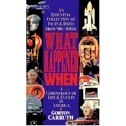 What Happened When by Carruth.
What Happened When by Carruth.
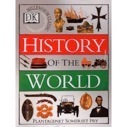 , History of the World. A beautiful Dorling Kindersley book.
, History of the World. A beautiful Dorling Kindersley book.
I now and diligently look through each of these to find entries that I did not come across on the internet, and other printed lists. It is possible that there are places that have more listings for each year. I have not found them. And when you go to the Timelines at the Regency Assembly Press page, there you will see all the graphical references as well. Something that I did not find anywhere else.
Here is the complete list of entries for 1801:
Year
Month Day
Event
1801
Jan 1
Giuseppi Piazzi (d.1826), Italian astronomer, discovered an asteroid orbiting between Mars and Jupiter. He believed it to be a planet and named it Ceres (goddess of the harvest).
1801
Jan 11
Domenico Cimarosa (51), Italian composer (Matrimonio segreto), died.
1801
Jan 20
US Secretary of State John Marshall was nominated by President Adams to be chief justice. He was sworn in on Feb. 4, 1801. Marshall effectively created the legal framework within which free markets in goods and services could establish themselves. He became one of the greatest judges in US History, establishing the Supreme court as final authority in determining state and federal powers.
1801
Jan 28
Francis Barber (ca. 1735 – 1801), the Jamaican manservant of Samuel Johnson (1752-1784), died at the Staffordshire General Infirmary.
1801
Jan
Toussaint Louverture, ignoring the commands of Napoleon Bonaparte, overran Spanish Santo Domingo, where slavery persisted.
1801
January
January: Emma Hamilton gives birth to the illegitimate daughter of Lord Nelson.
1801
January
January: the Act of Union with Ireland creates the United Kingdom.
1801
Feb 4
John Marshall was sworn in as chief justice of the United States.
1801
Feb 7
John Rylands, merchant, philanthropist, was born in England.
1801
Feb 17
The House of Representatives broke an electoral tie between Thomas Jefferson and Aaron Burr, electing Jefferson president. Burr became vice president. When George Washington announced that he would retire from office, he set the stage for the nation’s first two-party presidential campaign.
1801
Feb 17
Thomas Jefferson won the White House vowing to get rid of all federal taxes. He was supported by a new coalition of anti-Federalists that was the ancestor of the Democratic Party. In 2003 Jules Witcover authored “Party of the People: A History of the Democrats.”
1801
Feb 21
John Henry Newman, was born. He was the Protestant vicar who converted to Catholicism and became a Roman Catholic Cardinal. He authored “Dream of Gerontius.”
1801
Feb 27
The District of Columbia was placed under the jurisdiction of Congress.
1801
Feb 28
Motiejus Valancius, Lithuanian educator, historian, writer and bishop, was born in Nasrenai in the Kretinga region. He died May 29, 1875, in Kaunas. His portrait is on the 2-litas note.
1801
February
February: The government of William Pitt collapses over the issue of Catholic emancipation. Pitt had made veiled promises of emancipation in order to secure the Act of Union, but George III would not support it, and Pitt resigned.
1801
February
February: The Treaty of Lunéville, between France and the Holy Roman Empire, is signed, giving France control up to the Rhine and the French client republics in Italy and the Netherlands. Britian is now the sole nation fighting against France.
1801
Mar 3
1st US Jewish Governor, David Emanuel, took office in Georgia.
1801
Mar 4
Thomas Jefferson became the first President to be inaugurated in Washington, D.C. (1801-1809). James Madison became secretary of state. In his inaugural address Jefferson said: “Though the will of the majority is in all cases to prevail, that will, to be rightful, must be reasonable; the minority possesses their equal right, which equal laws must protect, and to violate would be oppression.”
1801
Mar 4
The expression entangling alliances was coined by Thomas Jefferson and used in his first inaugural address: “Peace, commerce, and honest friendship with all nations–entangling alliances with none.” These words have been commonly attributed to George Washington; although Washington supported the idea expressed, there is no record of his having used this phraseology.
1801
Mar 10
Britain conducted its first census in order to find out how many men were available for conscription.
1801
Mar 11
Paul I (46), Czar of Russia (1796-1801), was strangled in his bedroom in St. Petersburg ending 4 years of insane rule. His son Alexander I Pavlovich (23) succeeded him.
1801
Mar 14
Prime Minister of Great Britain: Henry Addington, 1st Viscount Sidmouth
1801
Mar 14
Christian Friedrich Penzel (63), composer, died.
1801
Mar 21
Andrea Lucchesi (59), composer, died.
1801
Mar 24
Aleksandr P. Romanov became emperor of Russia.
1801
Mar 25
Anthony Ziesenis (69), architect, sculptor (Camper), died.
1801
March
March: England conducts its first census.
1801
March
March: Henry Addington becomes Prime Minister.
1801
March
March: The London Stock Exchange is founded.
1801
March
March: Thomas Jefferson becomes the third President of the United States.
1801
March
March: Tsar Paul I of Russia is assassinated. He is succedded by Tsar Alexander I.
1801
Apr 2
The British navy defeated the Danish at the Battle of Copenhagen.
1801
Apr 8
Soldiers rioted in Bucharest and killed 128 Jews.
1801
Apr 11
Johann von Schiller’s “Die Jungfrau von Orleans (The Maid of Orleans),” premieres in Leipzig.
1801
Apr 12
Josef Franz Karl Lanner, Austrian composer, violist, was born. D 1843. Dance composer; he was a contemporary of Johann Strauss senior, and helped lay the foundation for the Viennese waltz.
1801
Apr 21
Saudi Arabs led Sunni raids into Karbala, Iraq, killing about 5,000 people.
1801
Apr 24
The 1st performance of Joseph Haydn’s oratorio “Die Jahreszeiten (The Seasons).”
1801
Apr 28
Anthony Ashley-Cooper, the seventh Earl of Shaftesbury and a leading social reformer of the Victorian Age, was born in England. Shaftesbury labored to establish schools, to abolish the use of small children as chimney sweeps, and to wipe out child prostitution. He was a vocal opponent of slavery but had little respect for the United States’ President Abraham Lincoln and thought the South should be permitted to secede from the Union.
1801
April
April: At the Battle of Copenhagen, Lord Nelson deals a death blow to the League of Armed Neutrality (Russia, Denmark, Sweden, and Prussia) with his destruction of the Danish fleet. When he returns to England in June, he is elevated to a viscount.
1801
April
April: The U.S. Library of Congress is founded.
1801
May 6
British Lt. Thomas Cochrane, commander of the 14-gun sloop HMS Speedy, engaged and captured the 32-gun Spanish frigate El Gamo. The climactic battle in Patrick O’Brian’s novel “Master and Commander” is based on the Speedy’s fight with El Gamo. Cochrane was later elected to Parliament, pointed out corruption and was arrested on trumped up charges. After that he served as the first commander of Chile’s navy, then Brazil’s navy and the Greek navy before returning to England. In 2000 Robert Harvey authored “Cochrane: The Life and Exploits of a Fighting Captain.”
1801
May 14
The Pasha of Tripoli symbolically declared war on the US by cutting down the glagstaff in front of the US Consulate, after learning that Pres. Jefferson had refused to pay a renewed tribute of $225,000.
1801
May 16
William Henry Seward was born. He was later Gov. of New York and the American Sec. of State from 1861-1869. Under Pres. Lincoln he purchased Alaska for the United States at 2 cents per acre.
1801
Jun 1
Mormon leader Brigham Young (d.1877), the second president of the Mormon Church, was born in Whitingham, Vt.
1801
Jun 10
The North African state of Tripoli declared war on the United States in a dispute over safe passage of merchant vessels through the Mediterranean. Tripoli declared war on the U.S. for refusing to pay tribute.
1801
Jun 14
Former American Revolutionary War General Benedict Arnold died in London.
1801
Jun 29
Frederic Bastiat (d.1850), French free-market economist, was born in Bayonne. “The state is the great fictitious entity in which everyone seeks to live at the expense of everyone else.”
1801
June
June: Cairo falls to British troops.
1801
Jul 3
Johann Nepomuk Went (56), composer, died.
1801
Jul 5
David G. Farragut (d.1870), American naval hero, was born in Knoxville, Tenn.
1801
Jul 7
A new constitution, drafted by a committee appointed by Toussaint Louverture (L’Ouverture), went into effect and declared the independence of Hispaniola. The constitution made him governor general for life with near absolute powers.
1801
Jul 16
Pope Pius VII and 1st consul Napoleon signed a concord.
1801
Jul 17
The U.S. fleet arrived in Tripoli after Pasha Yusuf Karamanli declared war for being refused tribute.
1801
Aug 1
The American schooner Enterprise captured the Barbary cruiser Tripoli.
1801
Aug 6
A 9-day revival began at the Cane Ridge Presbyterian Church in Bourbon County, Kentucky. Some 20,000 people showed up for the revival called by Rev. Barton W. Stone. 3 evangelistic Christian groups grew out of the meeting.
1801
August
August: The West India Docks open after a two-year design and construction project by William Jessop. Built on the Isle of Dogs, they are the first large wet docks built in the Port of London, and can accommodate 600 ships.
1801
Oct 6
Napoleon Bonaparte imposed a new constitution on Holland.
1801
Oct 19
The first Philadelphia aqueduct was opened providing a new supply of fresh water for the growing city.
1801
Oct 23
Gustav Albert Lortzing, composer, was born.
1801
Oct 23
Johann Gottlieb Naumann (60), German composer, died.
1801
October
October: The Treaty of London is signed, a preliminary peace treaty ending the war between France and Britain.
1801
Nov 3
Karl Baedeker (d.1859), German publisher, was born. He became well known for travel guides. His 1835 “Travel on the Rhine” is widely considered as the 1st modern guidebook.
1801
Nov 3
Vincenzo Bellini, Italian opera composer (La Sonnambula, Norma), was born.
1801
Nov 9
Carl Philipp Stamitz, composer, died.
1801
Nov 9
Gail Borden (d.1874), inventor of condensed milk, was born in New York.
1801
Nov 10
Samuel Gridley Howe (d.1876), educator of the blind, was born. He was the husband of Julia Ward Howe, author of the “Battle Hymn of the Republic.”
1801
Nov 10
Kentucky banned dueling.
1801
Nov 16
The 1st edition of New York Evening Post was published. Alexander Hamilton helped found the paper and served as editor. Under the editorship of William Cullen Bryant from 1826-1878, it was Free-Soil and supported Abraham Lincoln.
1801
Dec 24
Richard Trevithick, inventor of the steam locomotive, completed a road test of his 1st “traveling engine” in Camborne, England.
1801
December
December: Richard Trevithick builds and demonstrates the first steam-powered road locomotive.
1801
Another Act of Union joins the Kingdom of Ireland to England and Scotland, and the Union Flag sees the addition of the diagonal red cross.
1801
Architects Charles Percier and Pierre-François-Léonard Fontaine publish the Recueil de décorations intérieures, a compilation of drawings of contemporary design that will set the standard for the Empire style of interior decoration that spreads throughout Europe.
1801
Beethoven completes the “Moonlight Sonata” (Piano Sonata No. 14 in C-sharp minor, Opus 27).
1801
English horse racing at Goodwood is introduced by Charles Lennox, Duke of Richmond.
1801
Lord Elgin, with permission of the Turkish government that controls Athens, begins the removal of sculptured portions of the Parthenon, a task that takes five years to complete.
1801
Maria Edgeworth’s Belinda is publlished.
1801
The first census is held.
1801
The Union Jack becomes the new flag of the United Kingdom in 1801, incorporating the Cross of St. George (England), the Cross of St. Andrew (Scotland), and the Cross of St. Patrick (Ireland).
1801
Robert Trevithick demonstrates a steam locomotive.
1801
Britain is rising as an industrial power. The average life expectancy is around 40. A fictional “better-off” family will be described as drinking water that has a cow taste because it is taken from a brook from which cows drink. Meat is rare. Dental care is poor. The family eats with wooden spoons. Candles are rarely used because they cost too much. The father “visited the city once, but the travel cost him a week’s wages… The children sleep two to a bed on straw mattresses on the floor.”
1801
Britain makes Ireland part of a single British kingdom. Parliament in Dublin is abolished. The Anglican Church is to be recognized as the official church in Ireland. No Catholics are to be allowed to hold public office.
1801
Napoleon of France has defeated Austria. In the treaty of Lunéville, Austria renounces claims to the Holy Roman Empire.
1801
Rembrandt Peale painted his brother’s portrait: “Rubens Peale with Geranium.”
1801
Francois Rene de Chateaubriand (1768-1848), French writer, authored his novel “Atala” following a trip to the US.
1801
Samuel Taylor Coleridge, English poet, wrote to Sir Humphrey Davy a letter in which he says: “I seem to sink in upon myself in a ruin, like a Column of Sand, informed and animated only by a Whirl-Blast of the Dessert.” Coleridge had become addicted to opium in this year.
1801
Beethoven composed Op. 25 Serenade for flute, Violin and Viola.
1801
Thomas Bruce, the 7th Earl of Elgin, took the 2,500 year-old bas-reliefs from the Parthenon while he served as the British ambassador to the Ottoman Empire. 17 figures and 56 panels were put on display at the British Museum in 1816. Around 1939 the marbles were subjected to a botched scouring operation that damaged 40% of the collection. Elgin had hired Giovanni Lusieri, an Italian artist from the court of the King of Naples, to oversee the Parthenon project.
1801
Thomas Jefferson began a set of proper rules for the Senate when he wrote: ” No one is to disturb another in his speech by hissing, coughing, spitting, speaking, or whispering to another.”
1801
Elder John Leland, a Baptist minister, helped commission a 1,235-pound wheel of Cheshire cheese as a gift of gratitude for Thomas Jefferson’s steadfast support of religious liberties.
1801
The London Stock Exchange formed. British government debt was the only security traded and this remained so until 1822.
1801
French artist Girodet depicted Ossian, the mythical 3rd century blind Scottish poet, before the story was exposed as a fraud.
1801
In France Napoleon opened the Louvre to the public.
1801
Napoleon’s army in Egypt surrendered to Turkish and English forces. The French civilian toll topped 25 of 150, while the military toll topped 25,000 over the 3-year expedition. Turks recover Egypt.
1801
Friedrich von Hardenberg (b.1772), German poet (Novalis), died. He was later known as the father of German romantic nationalism.
1801
In Mexico La Iglesia de Nuestra Senora del Refugio was a Franciscan-style mission church built in the border town of Guerrero Viejo.
1801
South Ossetia was absorbed into the Russian Empire along with Georgia.
1801
In India William Carey, Protestant missionary printed his new Testament translated into Bengali on his own printing press. He also translated the Sanskrit classics into Bengali and printed the first Bengali Newspaper.
1801
The French dancer and choreographer Charles Didelot went to St. Petersburg, where he concentrated on teaching a new generation of dancers.
1801
Birth of Giuseppe Concone (D. 1861), singing master. pianist and composer, his singing exercises are still used today.
1801
In Russia the Cathedral of the Virgin of Kazan, St. Petersburg by Andrea Voronikhin (1760-1814) is a typical high imperial Russian building of the nineteenth century, modeled on St. Peter’s Rome.
1801
Thomas Milton (1743-1827) engraver, published three folios of aquatints. Views in Egypt, The Ottoman Empire and Palestine, by Liugi Mayer (d. 1803) English artists and architects were inspired by the imagery.
1801
Death of Sharaku in Japan. Portrait artists of actors and himself an actor of Nō plays. His prints were admired outside Japan for their eccentricity, psychological penetration and qualities of caricature.
1801
Prussians march into Hanover
1801
CD Grabbe German Dramatist born (D 1836)
1801
Kotzebue: “Die deutschen Kleinstadter,” Comedy
1801
Johann Nestroy Austrian dramatist and comedian born (D 1862)
1801
Robert Southey: “Thalaba the Destroyer” poem
1801
KF Gauss: “Disquisitiones arithmeticae”
1801
Hegel and Schellilng publish the “Critical Journal of Philosophy”
1801
Bank of France founded
1801
European Populations: Italy 17.2 million, Spain 10.5M, Britain 10.4M, London 864K, Paris 547K, Vienna 231K, Berlin 183K
1801
First Iron trolley tracks, Croydon-Wandsworth England
1801
Victoria Regia (“Queen of the NIght”) discovered in Amazon territory
1801
MFX Bichat (1771-1802): “Anatomie generale”
1801
American civil engineer Robert Fulton (1765-1815) produces the first submarine “Nautilus” (Brest)
1801
JJ Lalande catalogues 47,390 stars
1801
Beethoven : “Die Geschopfr des Prometheus,” Ballet in Vienna
1801
Daniel Chodowiecki, german painter died (B1726)
1801
David: “Napoleon au Grand Saint-Bernard”
1801
Goya “The Two Majas”
1801
Joseph Paxton, English Architect born (D1865)
1801-1803
Matthew Flinders circumnavigates, then names, Australia
1801-1806
Alexandre Dumas (d.1870) covered these years of French history in an 1869 serialized novel printed in the journal, “The Universal Monitor.” In the 1980s Claude Schopp, a retired French lecturer, discovered the epic novel on microfilm. He got it published under the title “Le Chevalier de Sainte-Hermine,” and in 2005 it became a top ten seller.
1801-1835
John Marshall (1755-1835) was chief justice of the US Supreme Court. In 1996 Charles F. Hobson wrote “The Great Chief Justice: John Marshall and the Law” and Jean Edward Smith wrote “John Marshall: Definer of a Nation.”
1801-1848
Thomas Cole, English born US painter. He and Asher B. Durand became fathers of the Hudson River School of painting and founded the National Academy of Design.
1801-1864
Caroline Matilda Stansbury Kirkland, American author: “Like other spurious things, fastidiousness is often inconsistent with itself, the coarsest things are done, and the cruelest things said by the most fastidious people.”
1801-1866
Jane Welsh Carlyle, English writer: “In spite of the honestest efforts to annihilate my ‘I-ity,’ or merge it in what the world doubtless considers my better half (historian Thomas Carlyle), I still find myself a self-subsisting and alas! self-seeking ME.”
1801-1921
A single Parliament legislated all the British Isles. A history of the archipelago was written in 2000 by Norman Davies: “The Isles.”
That’s right, today is the first day that it is available. Kindle’s today, and then in a week or so, you can have it in your hands physically if you so desire in Trade Paperback form as the other releases from our publisher, Regency Assembly Press does.
This release the publisher is trying out the Kindle Select program so it is exclusive to Amazon for 90 days. What that means for you, a reader, is that should you have
1) a Kindle
2) Are a member of Amazon Prime
then you can borrow the book, free to you, and try before you buy (always, please buy.)
For myself and Regency Assembly Press it is an experiment. RAP (And we hope you all are RAPpers and not RAPscallions) wants to see if this will work. They have also reduced the price of this book to half of what RAP books sell for. $3.99 for an electronic copy.
If you do not have an actual Kindle, Amazon has made it possible to read this book on virtually any electronic device. GO HERE if you want to get a copy for something other than a Kindle, or wait patiently until right before Thanksgiving (November 15th) when it will be released in all other digital formats.
Here is a picture, which of course you can click on to go fetch the book:
Love is something that can not be fostered by deceit even should one’s eyes betray one’s heart.
Two brothers that are so close in appearance that only a handful have ever been able to tell them apart. The Earl of Kent, Percival Francis Michael Coldwell is only older than his brother, Peregrine Maxim Frederick Coldwell by 17 minutes. They may have looked as each other, but that masked how they were truthfully quite opposite to one another.
For Percy, his personality was one that he was quite comfortable with and more than happy to let Perry be of a serious nature. At least until he met Veronica Hamilton, the daughter of Baron Hamilton of Leith. She was only interested in a man who was serious.
Once more, Peregrine is obliged to help his older brother by taking his place, that the Earl may woo the young lady who has captured his heart. That is, until there is one who captures Peregrine’s heart as well.
Available in other digital formats on 11/15/2012
and
We are still selling this book (and of course all our other ones.) JANE AUSTEN AND GHOSTS is not set in the Regency Era or references the timeline in anyway. However it is a great romp and I am sure that you will enjoy spending time with it.
Here is a picture, which of course you can click on to go fetch the book:
In the world of moviemaking, nothing is as golden as rebooting a classic tale that has made fortunes every time before when it has been adapted for the silver screen. Certainly any work by Jane Austen made into a movie will not only be bankable, but also considered a work of art.
That is of course until the current wave of adaptations that unite her classic stories with all the elements of the afterlife is attempted to be created. That these have found success in the marketplace amongst booklovers may not be quite understood by those who make movies. But that they are a success is understood and a reason to make them into movies.
All that being said, perhaps it would also be fair to say that the very proper Jane, were she present to have anything to say about it, would not be pleased. Of course she has been away from this Earth for nearly 200 hundred years. But does that mean were she upset enough, she wouldn’t come back?
Ellis Abbot found stories for tinseltown to make into movies. His most recent find were the batch of stories set in the regency world of Jane Austen. Jane Austen and Monsters.
Meeting with the various authors of those works, it did not seem that Ellis could get one coherent plot of script out of any of them. At least not until he got help from the best source of all.


A Regency Era Timeline 1804 in progress
That’s right, today is the first week that it is available. Kindle’s today, and then in a week or so, you can have it in your hands physically if you so desire in Trade Paperback form as the other releases from our publisher, Regency Assembly Press does.
This release the publisher is trying out the Kindle Select program so it is exclusive to Amazon for 90 days. What that means for you, a reader, is that should you have
1) a Kindle
2) Are a member of Amazon Prime
then you can borrow the book, free to you, and try before you buy (always, please buy.)
For myself and Regency Assembly Press it is an experiment. RAP (And we hope you all are RAPpers and not RAPscallions) wants to see if this will work. They have also reduced the price of this book to half of what RAP books sell for. $3.99 for an electronic copy.
If you do not have an actual Kindle, Amazon has made it possible to read this book on virtually any electronic device. GO HERE if you want to get a copy for something other than a Kindle, or wait patiently until right before Thanksgiving (November 15th) when it will be released in all other digital formats.
Here is a picture, which of course you can click on to go fetch the book:
Love is something that can not be fostered by deceit even should one’s eyes betray one’s heart.
Two brothers that are so close in appearance that only a handful have ever been able to tell them apart. The Earl of Kent, Percival Francis Michael Coldwell is only older than his brother, Peregrine Maxim Frederick Coldwell by 17 minutes. They may have looked as each other, but that masked how they were truthfully quite opposite to one another.
For Percy, his personality was one that he was quite comfortable with and more than happy to let Perry be of a serious nature. At least until he met Veronica Hamilton, the daughter of Baron Hamilton of Leith. She was only interested in a man who was serious.
Once more, Peregrine is obliged to help his older brother by taking his place, that the Earl may woo the young lady who has captured his heart. That is, until there is one who captures Peregrine’s heart as well.
Available in other digital formats on 11/15/2012
Timeline
Each time I start a year, I have already compiled a list, months ago with about 6000 entered of what happened from 1788 to 1837. My first step now (It took several trials to get this down to a science) is to cut out the specific year I will work on and paste it into its own spreadsheet to work with. When I worked on the entire spreadsheet, sometimes inserting a line, with all the graphics I had begun to place, took a long time. Working on each year alone, is a lot faster.
With the year separated out, I now turn to my book sources,
The Timetables of History by Grun and Stein
Chronology of CULTURE by Paxton and Fairfield
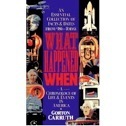 What Happened When by Carruth.
What Happened When by Carruth.
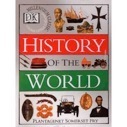 , History of the World. A beautiful Dorling Kindersley book.
, History of the World. A beautiful Dorling Kindersley book.
I now and diligently look through each of these to find entries that I did not come across on the internet, and other printed lists. It is possible that there are places that have more listings for each year. I have not found them. And when you go to the Timelines at the Regency Assembly Press page, there you will see all the graphical references as well. Something that I did not find anywhere else.
Here is the start of 1804:
Year
Month Day
Event
1804
Jan 1
Jean-Jacques Dessalines proclaimed the Republic of Haiti and declared independence from France. Documentation of his speech was then lost and only re-discovered in 2010 by a Canadian graduate student searching in the British National Archives.
1804
Jan 5
Ohio legislature passed the 1st laws restricting free blacks movement. [see Mar 28]
1804
Jan 31
British vice-admiral William Bligh (of HMS Bounty infamy) fleet reached Curacao (Antilles).
1804
Feb 6
Joseph Priestley (b.1733), English-born US writer, philosopher and chemist, died in Pennsylvania. He became best known for having discovered oxygen. Priestley also figured out how to manufacture carbonated water and is sometimes called “the father of the soft-drink industry.” In 2008 Steven Johnson authored “The Invention of Air: A Story of Science, faith, Revolution, and the Birth of America.”
1804
Feb 7
John Deere, farm equipment manufacturer, was born.
1804
Feb 15
New Jersey became the last northern state to abolish slavery.
1804
Feb 16
Lt. Stephen Decatur attacked Tripoli, where pirates held the USS Philadelphia. Decatur and 76 volunteers, aboard the captured Intrepid, attempted to recapture the Philadelphia, which caught fire, exploded and sank. Decatur and his crew escaped.
1804
Feb 25
Thomas Jefferson was nominated for president at the Democratic-Republican caucus.
1804
Feb 26
Vice-Admiral William Bligh ended the siege of Fort Amsterdam, Willemstad.
1804
February
February: A royalist conspiracy against Napoleon is uncovered.
1804
February
February: German philosopher Immanuel Kant dies at age 79.
1804
February
February: Richard Trevithick designs and demonstrates the first steam-powered railway locomotive.
1804
Mar 7
John Wedgwood, founder (Royal Horticulture Society), died.
1804
Mar 8
Alvan Clark, telescope manufacturer, was born.
1804
Mar 12
Judge John Pickering, a federal district judge in New Hampshire, was the first American official impeached and then found guilty by the Senate. Pickering, a Federalist, was impeached as unfit based on charges related to his habitual drunkenness and bizarre handling of cases. He was adjudged guilty and removed from office in spite of evidence establishing that he was insane and hence not culpable of high crimes or misdemeanors. Impeached during the same period, Chief Justice Samuel Chase was acquitted by the Senate on March 1, 1805, ending the Republican campaign against the Federalist bench and discouraging subsequent administrations from using impeachment to remove politically obnoxious judges.
1804
Mar 14
Johann Strauss (d.1849), Austrian orchestra conductor and composer, was born. His son was also named Johann (1825-1899).
1804
Mar 21
The French civil code, later called the “Code Napoleon,” was adopted.
1804
Mar 26
Congress ordered the removal of Indians east of the Mississippi to Louisiana.
1804
Mar 26
The Louisiana Purchase was divided into the Territory of Orleans and the District of Louisiana.
1804
Mar 28
Ohio passed law restricting movement of Blacks. [see Jan 5]
1804
March
March: One of the royalist conspirators, Louis-Antoine-Henri de Bourbon-Condé, duc d’Enghien, is seized, condemned by a commission acting under Napoleon’s orders, and shot, ending any hope of a reconciliation between the emperor and the royal house of Bourbon. The young duke’s murder is discussed in the opening of Tolstoy’s War and Peace.
1804
March
March: The Code Napoleon is adopted as French civil law.
1804
March
March: The Royal Horticultural Society is founded.
1804
Apr 20
Jean-Jacques Dessalines, Haitian rebel leader, commanded a massacre of the French at town of Cape Francois. It is generally thought that Dessalines had around 20,000 French slaughtered in early 1804.
1804
Apr 22
Gioacchino Rossini (12) performed in Imola.
1804
April
April: Another of the royalist conspirators, General Charles Pichegru is found strangled in his cell at the Temple prison. It was rumored, but never proven, that his murder was ordered by Napoleon.
1804
10-May
Prime Minister of the United Kingdom: William Pitt “The Younger”
1804
May 14
The Lewis and Clark expedition to explore the Louisiana Territory left St. Louis. Explorer William Clark sets off from St. Louis, Missouri, to travel upriver to wait for Meriwether Lewis. The two will soon depart together on a journey to reach the Pacific. The trip was retold in a TV movie by Ken Burns in 1997. [see May 22]
1804
May 16
Elizabeth Palmer Peabody, founder of the first U.S. kindergarten, was born.
1804
May 18
The French Senate proclaimed Napoleon Bonaparte emperor.
1804
May 22
The Lewis and Clark Expedition officially began as the Corps of Discovery departed from St. Charles, Missouri. [see May 14]
1804
May
May: Napoleon is proclaimed Emperor of the French by the French Senate.
1804
May
May: William Pitt once again becomes Britian’s Prime Minister after the resignation of Henry Addington.
1804
Jun 3
Richard Cobden, English economist and politician, was born. He became known as ‘the Apostle of free trade.’ He led the Anti-Corn League, which in 1839-1846 fought to remove price controls and import barriers for wheat.
1804
Jun 26
The Lewis and Clark Expedition reached the mouth of the Kansas River after completing a westward trek of nearly 400 river miles.
1804
Jun 29
Privates John Collins and Hugh Hall of the Lewis and Clark Expedition were found guilty by a court-martial consisting of members of the Corps of Discovery for getting drunk on duty. Collins receives 100 lashes on his back and Hall receives 50.
1804
Jul 1
George Sand (Amandine-Aurore Lucille Dupin de Francueil, d.1876), French novelist, was born in Paris. She wrote some 80 novels that included “Consuelo” (1842) and “La Comtesse de Rudolstadt” (1843). In 1975 Curtis Cate published the biography: “George Sand.” “I would rather believe that God did not exist than believe that He was indifferent.”
1804
Jul 4
Nathaniel Hawthorne (d.1864) American novelist and short-story writer, was born in Marblehead, [Salem], Massachusetts. Hawthorne was born to a prominent but decaying family. One of his ancestors, a judge in the Salem witchcraft trials, became the model for the accursed founder of The House of the Seven Gables. Hawthorne would often wonder whether the decline of his family’s fortune was a punishment for the sins of his “sable-cloaked steeple-crowned progenitors.” Marblehead is also the location of the house in his book “The House of Seven Gables.” He also wrote “The Scarlet Letter.”
1804
Jul 11
Vice President Aaron Burr mortally wounded Alexander Hamilton (47), former first Treasury Secretary, in a pistol duel near Weehawken, N.J. A warrant for Burr’s arrest was soon issued in New Jersey and New York, where Hamilton died. In 1999 Richard Brookhiser wrote “Alexander Hamilton: American.” In 2001 Joanne B. Freeman edited his writings and published: Alexander Hamilton: Writings.”
1804
Jul 12
Alexander Hamilton (47), US Sec. of Treasury, died in New York of wounds from a pistol duel in New Jersey with VP Aaron Burr. In 1920 Frederick Scott Oliver authored a Hamilton biography. In 2002 Stephen Knott authored “Alexander Hamilton and the Persistence of Myth.” In 2004 Ron Chernow authored the biography “Alexander Hamilton.” Lawyer Ambrose Spencer (1765-1848) said Hamilton “more than any man, did the thinking of his time.”
1804
Jul 21
Victor Schoelcher, abolished French slavery, was born in Guadeloupe.
1804
Aug 3
US Commodore Edward Prebble’s squadron bombarded Tripoli inflicting heavy damages on the city.
1804
Aug 20
Charles Floyd died, the only fatality of the Lewis & Clark Expedition. In 1901 a memorial was erected at his gravesite in Sioux City, Iowa.
1804
Aug 25
In England Alice Meynell became the 1st woman jockey.
1804
Aug 31
Lewis and Clark held a council with local Sioux Indian chiefs in what is now eastern North Dakota.
1804
August
August: Alice Meynell becomes the first female jockey in England.
1804
Sep 5
In a daring night raid, American sailors under Lieutenant Stephen Decatur, boarded the captured USS Philadelphia and burned the ship to keep it out of the hands of the Barbary pirates who captured her.
1804
Sep 21
Another major hurricane hit Puerto Rico on the feast day of St. Matthew and became known as the San Mateo II hurricane [see 1575].
1804
Sep 25
The 12th Amendment was ratified. It required electors to vote separately for the president and vice-president.
1804
Oct 2
England mobilized to protect against an expected French invasion by Napoleon.
1804
Oct 5
Robert Parker Parrott (d.1877), Inventor (Parrot Gun- 1st machine gun), was born.
1804
Oct 5
The Nuestra Senora de las Mercedes, a Spanish galleon, was sunk by the British navy southwest of Portugal with more than 200 people on board. In May 2007, Odyssey Marine Exploration announced that it had discovered a wreck in the Atlantic and its cargo of 500,000 silver coins and other artifacts worth an estimated $500 million. Spain claimed this was the Nuestra Senora de las Mercedes. In 2009 Peru pushed claims to the silver coins arguing that they were minted in Lima. In 2012 a US judge ordered that the treasure be returned to Spain.
1804
Oct 6
Jean-Jacques Dessalines (b.1758) had himself crowned James I, Emperor of Haiti. He was murdered two years later in a conspiracy under Christophe and Pétion.
1804
Oct 9
Hobart, Tasmania, was founded.
1804
Oct 26
Lewis and Clark accepted an invitation to camp for the winter near a cluster of villages inhabited by the Mandan and Hidatsa Indians.
1804
Nov 18
Palver Purim (Feast of Lots) was 1st celebrated to commemorate miraculous escape. The Jewish festival marked the deliverance of the Jews in Persia from Haman.
1804
Nov 23
Franklin Pierce, 14th president of the United States, was born in Hillsboro, N.H.
1804
Nov 27
Pres. Jefferson issued a nationwide proclamation to military and public officials warning of a conspiracy to attack Spanish territory in Texas. He had opened negotiations with Spain to purchase Texas territory west of New Orleans. Jefferson had heard rumors that Aaron Burr had begun plotting an invasion of Texas. Jefferson ordered Gen. James Wilkinson to move federal troops into defensive positions between the Sabine River and New Orleans. Wilkinson, unbeknownst to Jefferson, was a close confidant of Burr and also worked as a spy in the employ of Spanish officials in Mexico.
1804
Nov 30
Supreme Court Justice Samuel Chase went on trial, accused of political bias. He was acquitted by the Senate in 1805.
1804
Nov
Thomas Jefferson was re-elected US president. George Clinton, the seven-term governor of New York, was elected vice president under Jefferson and again under Madison in 1808. Clinton died in office on April 20, 1812.
1804
Nov
Lewis and Clark hired French-Canadian fur trapper Toussaint Charbonneau as an interpreter, with the understanding that Sacagawea, who was only about 16 and pregnant, would come along to interpret the Shoshone language. She and another woman had been purchased by Charbonneau, who lived among the Hidatsa and Mandan Indians, to be his wives.
1804
Dec 1
Emperor Napoleon married Josephine de Beauharnais, of Martinique.
1804
Dec 2
Napoleon crowned himself emperor of France with Josephine as Empress as Pope Pius VII looked on. In 1807 Jacques-Louis David completed his painting of the event.
1804
Dec 21
Benjamin Disraeli (d.1881), Prime Minister of Great Britain (1868, 1874-80), was born. He instituted reforms in housing, public health and factory regulations. “Youth is a blunder; manhood a struggle; old age a regret.” In 1993 Stanley Weintraub published “Disraeli: A Biography.”
1804
December
December: Napoleon crowns himself Emperor of France at Notre Dame Cathedral in Paris.
1804
December
December: Spain declares war on Britain.
1804
A settlement is founded at Risdon on the Derwent River in Van Diemen’s Land. Later the settlement (to become Hobart) is moved across the river to Sullivan’s Cove.
1804
At Sydney, the Castle Hill convict rebellion, also known as the Second Battle of Vinegar Hill.
1804
Gas lighting is demonstrated at London’s Lyceum Theatre by German inventor Frederick Albert Winsor.
1804
The Society of Painters in Water Colours is founded by artists who do not believe their medium commands enough respect by the Royal Academy.
1804
The Royal College of Surgeons is founded in London.
1804
Japan refuses trade with arriving Russian ships.
1804
The Russians visit the Hawaiian islands on their way to Fort Ross in California.
1804
Around 150,000 Hawaiians — nearly half of the population — are dying from the Great Sickness — an unknown disease brought by Europeans.
1804
Serbs revolt against Ottoman authority and win autonomy status — self-rule within the Ottoman Empire — demonstrating Ottoman weakness to Greeks, who remain under Ottoman rule.
1804
Haiti proclaims itself a republic and independent.
1804
In Hausaland (south of the Sahara and west of Lake Chad), Muslim herdsmen war against non-Muslim Hausa chiefdoms and gain power in the region.
1804
In the wartime atmosphere and as a defense against French royalty, the Senate in France votes in favor of Napoleon Bonaparte becoming Napoleon I, “Emperor of the French.” Napoleon crowns himself emperor. Beethoven is enraged. He dislikes royalty and tears up the title page for his Symfonia Buonaparte, which will be known as his Symphony No.3.
1804
Spain joins Napoleon’s war as an ally against the British.
1804
John Quincy Adams published his travel book: “Letters on Silesia.”
1804
Fort Dearborn was erected on the Chicago River on the site of present-day downtown Chicago. With the outbreak of the War of 1812, the garrison of 67 soldiers, their dependents and settlers were ordered to evacuate to Fort Wayne. Most of them were massacred en route by Pottawatomie Indians, who then burned the fort. Fort Dearborn was rebuilt in 1816 and around it grew the settlement that would become Chicago. Abandoned in 1837, Fort Dearborn was demolished in 1856.
1804
Meriwether Lewis and William Clark packed up 5,555 rations of flour, and 120 gallons of whiskey for their western journey of exploration that would last 2 ½ years. In 1996 Stephen Ambrose published an account of their trip titled: “Undaunted Courage: Meriwether Lewis, Thomas Jefferson, and the opening of the American West.” The cutthroat trout, Onchorhynchus clarki lewisi, was found to be highly abundant. In 1997 the fish was on the brink of extinction.
1804
The town of St. Michaels on the Chesapeake Bay was incorporated, resurveyed and laid out in three squares: Harrison’s square to the north, Thompson’s square to the west and Braddock’s square to the east.
1804
In Australia soldiers fired on an aboriginal hunting party on Tasmania and killed some 50 people. Some were salted down and sent to Sydney as anthropological curiosities.
1804
The British Royal Horticultural Society was formed.
1804
The British Royal Watercolour Society was formed.
1804
Samuel Taylor Coleridge (32), English poet, fled to Malta and worked as an assistant to the civilian governor. He returned to England in 1806.
1804
A motion in British Parliament for abolition of the slave trade passed in the House of Commons 124 to 29, but was defeated in the House of Lords.
1804
In England John Barrow (1764-1848) was appointed Second Secretary to the Admiralty by Viscount Melville, a post which he held for forty years (apart from a short period in 1806-07 when there was a Whig government in power).
1804
Sir George Cayley, England’s “father of aeronautics,” built and flew the world’s first successful model glider.
1804
The Botanical Gardens of Antwerp, Belgium, began as a large herb garden dedicated to medicinal plants.
1804
A stone signal tower was built on Clare Island as part of a series along the Irish west coast in fear of an invasion by Napoleon.
1804
The Pere Lachaise Cemetery of Paris was founded.
1804
Empress Josephine, wife of Napoleon I, began a rose collection at Malmaison, and sparked a wide interest in rose culture.
1804
The Wahabis captured Medina, Arabia.
1804
Immanuel Kant (b. 1724), German philosopher, died. His “categorical imperative” helped to ascertain the proper course under any circumstances: “Act only on the maxim through which you can at the same time will that it should become a universal law.” Kant had described how the sun and planets might have condensed from a primordial cloud with no divine intervention.
1804-1866
Eliphalet Nott, Presbyterian minister, president of Union College during this period. UC was the first non-denominational college in the US. It emphasized practical education as well as classical studies.
1804-1999
In 2000 Misha Glenny authored “The Balkans, 1804-1999.”


August 16, 2012
Regency Era release of Two Peas in a Pod
Georgette Heyer
Well it is Georgette Heyer Birthday 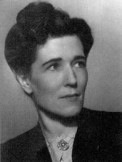 week! It is even Georgette Heyer’s Birthday!
week! It is even Georgette Heyer’s Birthday!
Born 110 years ago.
So she would be quite old today. She passed on the 4th of July, 1974 at the age of 71.
This however is not a post about Georgette Heyer.
She is one of the reason I write and read Regencies. (I like Austen as well, but Heyer is wickedly fun. Read 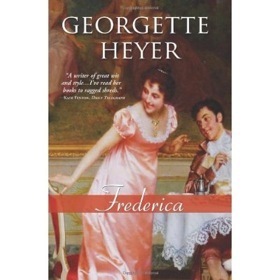 Frederica and you’ll see why I like her. Or countless others of her Regencies. They are on sale today at places like Sourcebooks, or if you are into reading on a tablet like an iPad, you can go to the iBookstore and get nearly all for $2.99 each.
Frederica and you’ll see why I like her. Or countless others of her Regencies. They are on sale today at places like Sourcebooks, or if you are into reading on a tablet like an iPad, you can go to the iBookstore and get nearly all for $2.99 each.
But what I really want to toot my horn today, is the release of
That’s right, today is the first day that it is available. Kindle’s today, and then in a week or so, you can have it in your hands physically if you so desire in Trade Paperback form as the other releases from our publisher, Regency Assembly Press does.
This release the publisher is trying out the Kindle Select program so it is exclusive to Amazon for 90 days. What that means for you, a reader, is that should you have
1) a Kindle
2) Are a member of Amazon Prime
then you can borrow the book, free to you, and try before you buy (always, please buy.)
For myself and Regency Assembly Press it is an experiment. RAP (And we hope you all are RAPpers and not RAPscallions) wants to see if this will work. They have also reduced the price of this book to half of what RAP books sell for. $3.99 for an electronic copy.
If you do not have an actual Kindle, Amazon has made it possible to read this book on virtually any electronic device. GO HERE if you want to get a copy for something other than a Kindle, or wait patiently until right before Thanksgiving (November 15th) when it will be released in all other digital formats.
Here is a picture, which of course you can click on to go fetch the book:
Love is something that can not be fostered by deceit even should one’s eyes betray one’s heart.
Two brothers that are so close in appearance that only a handful have ever been able to tell them apart. The Earl of Kent, Percival Francis Michael Coldwell is only older than his brother, Peregrine Maxim Frederick Coldwell by 17 minutes. They may have looked as each other, but that masked how they were truthfully quite opposite to one another.
For Percy, his personality was one that he was quite comfortable with and more than happy to let Perry be of a serious nature. At least until he met Veronica Hamilton, the daughter of Baron Hamilton of Leith. She was only interested in a man who was serious.
Once more, Peregrine is obliged to help his older brother by taking his place, that the Earl may woo the young lady who has captured his heart. That is, until there is one who captures Peregrine’s heart as well.
Available in other digital formats on 11/15/2012




